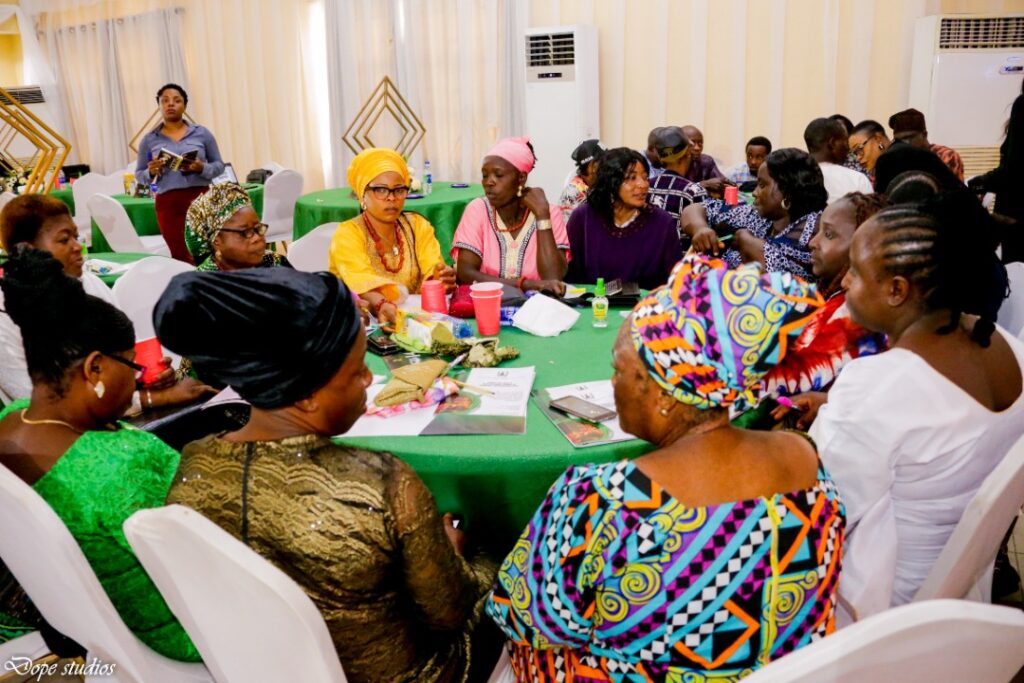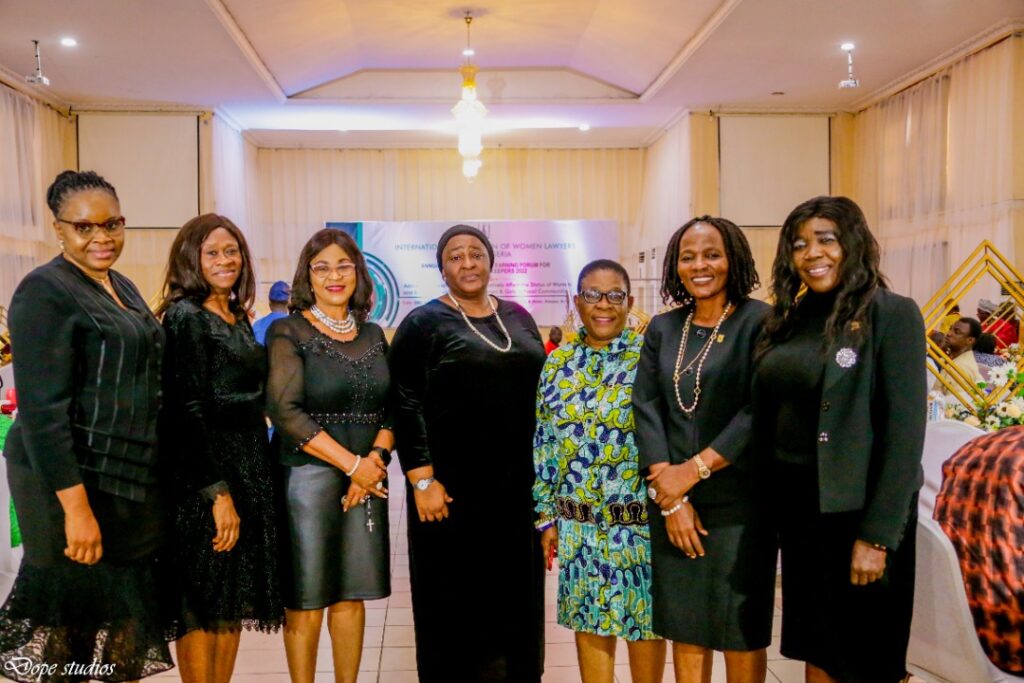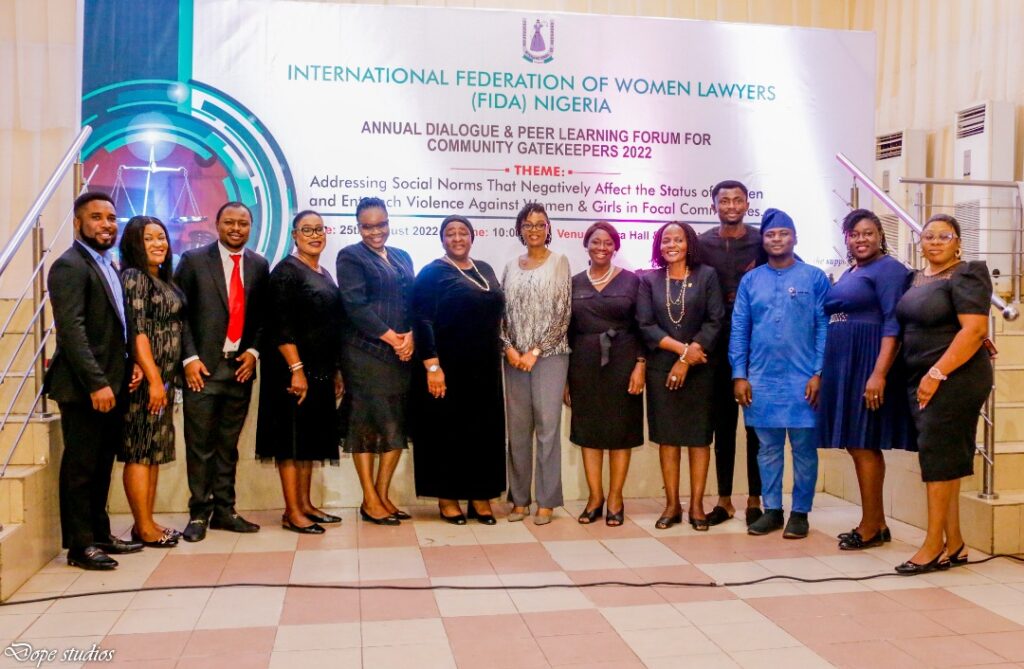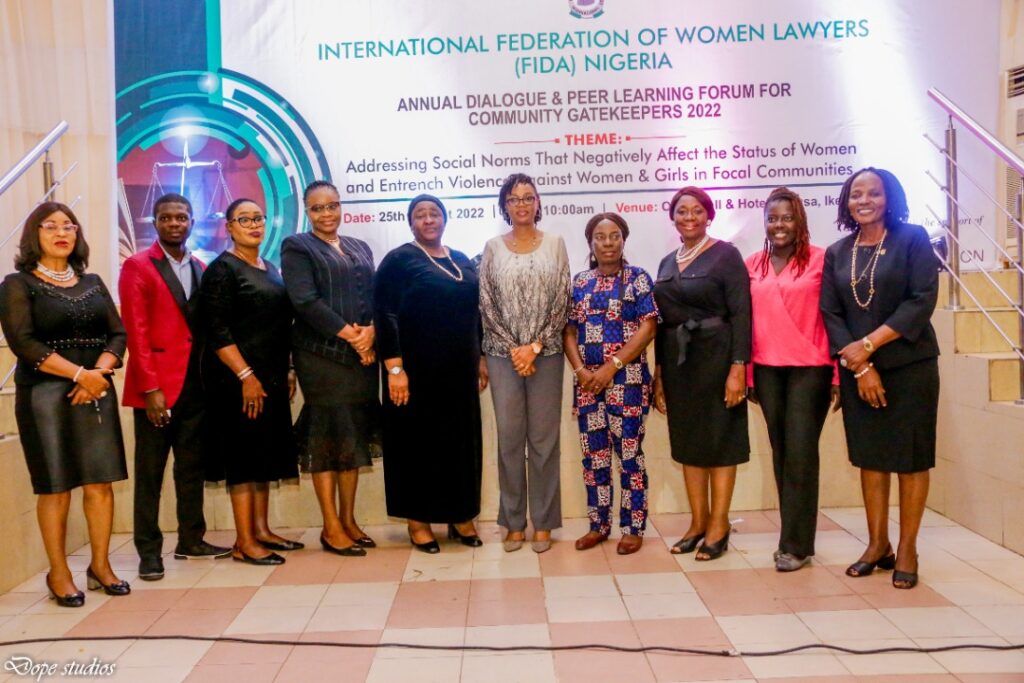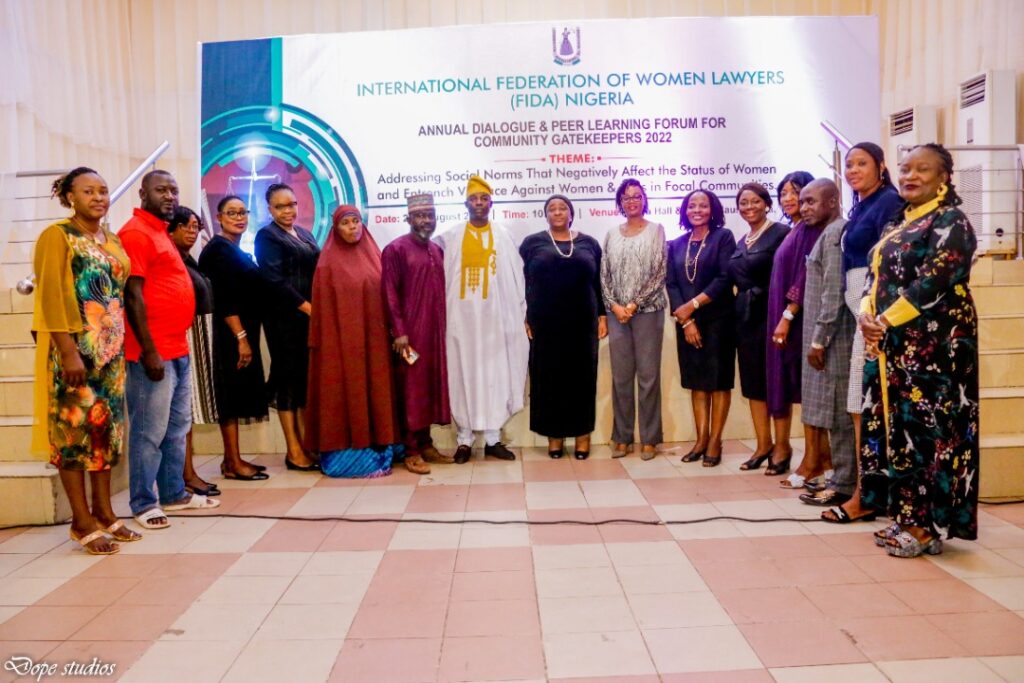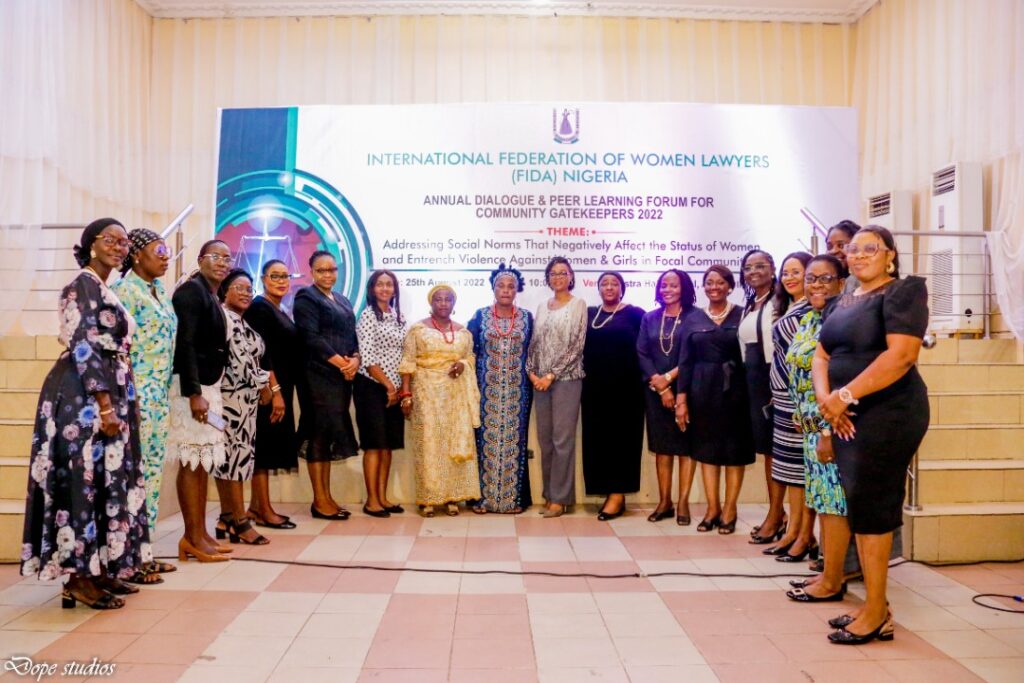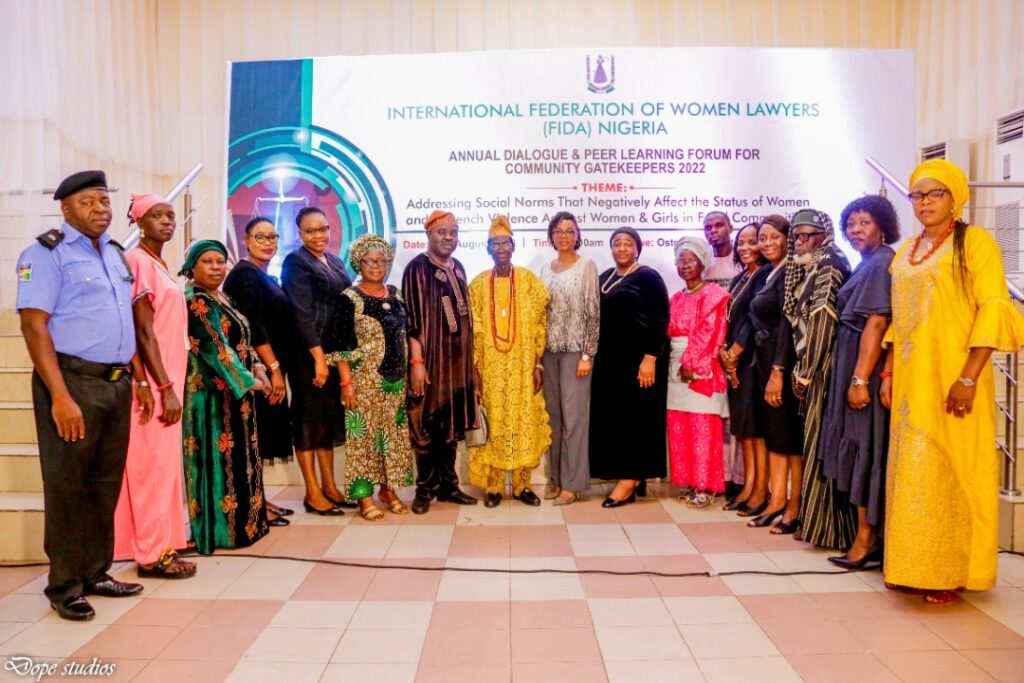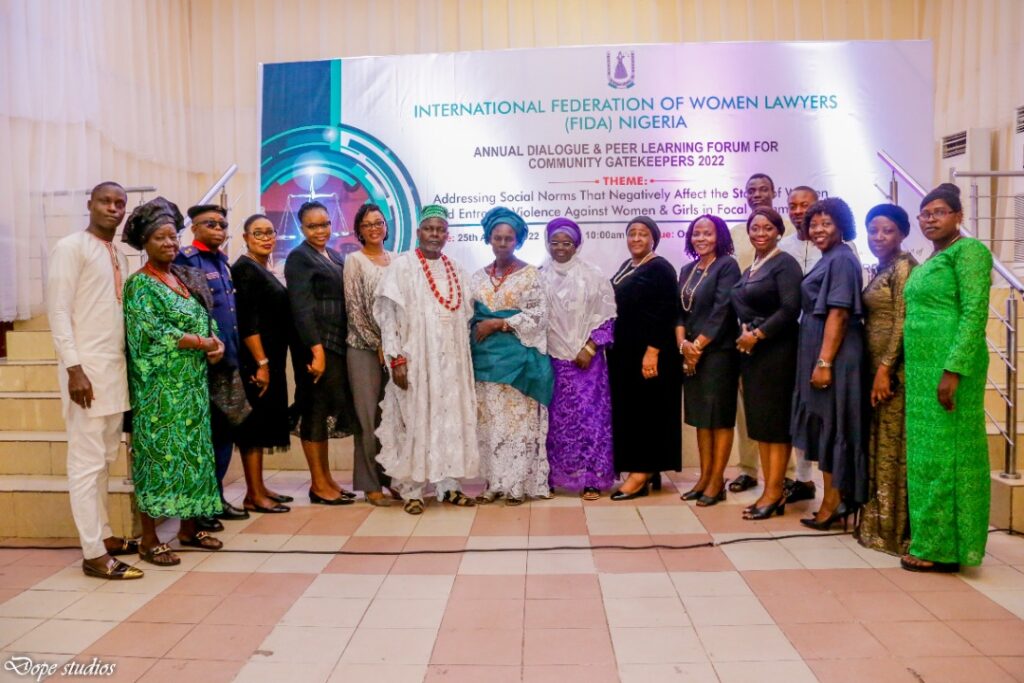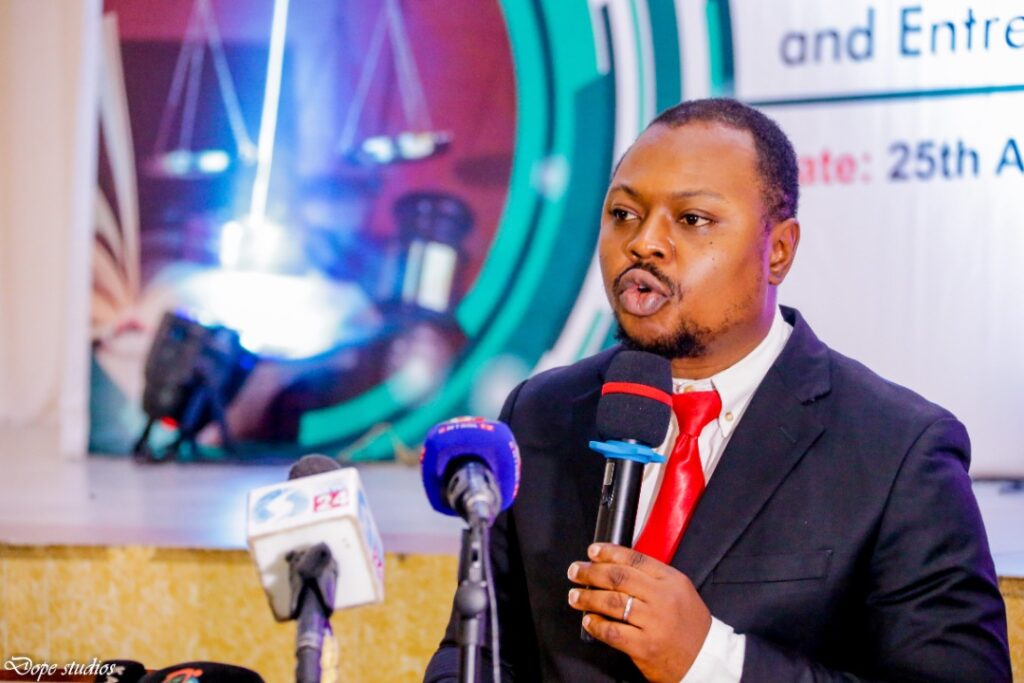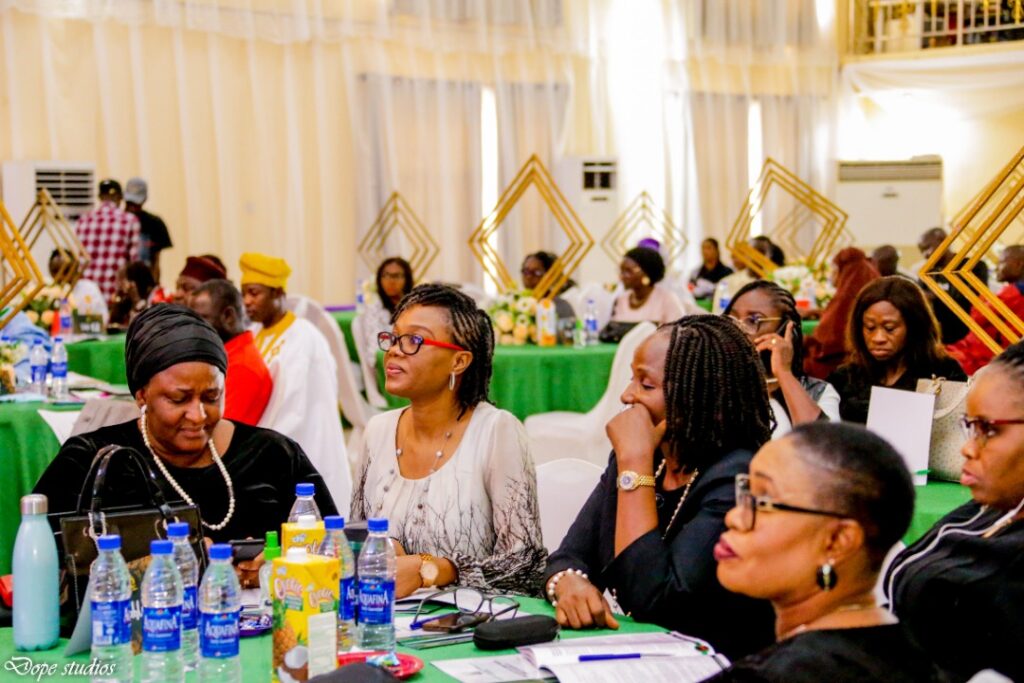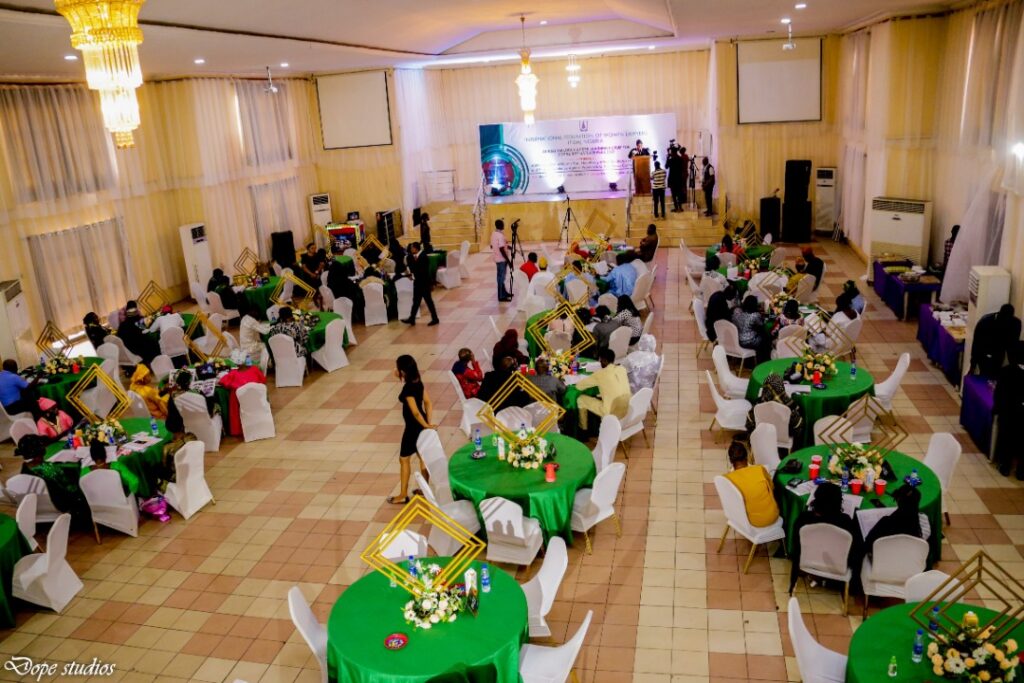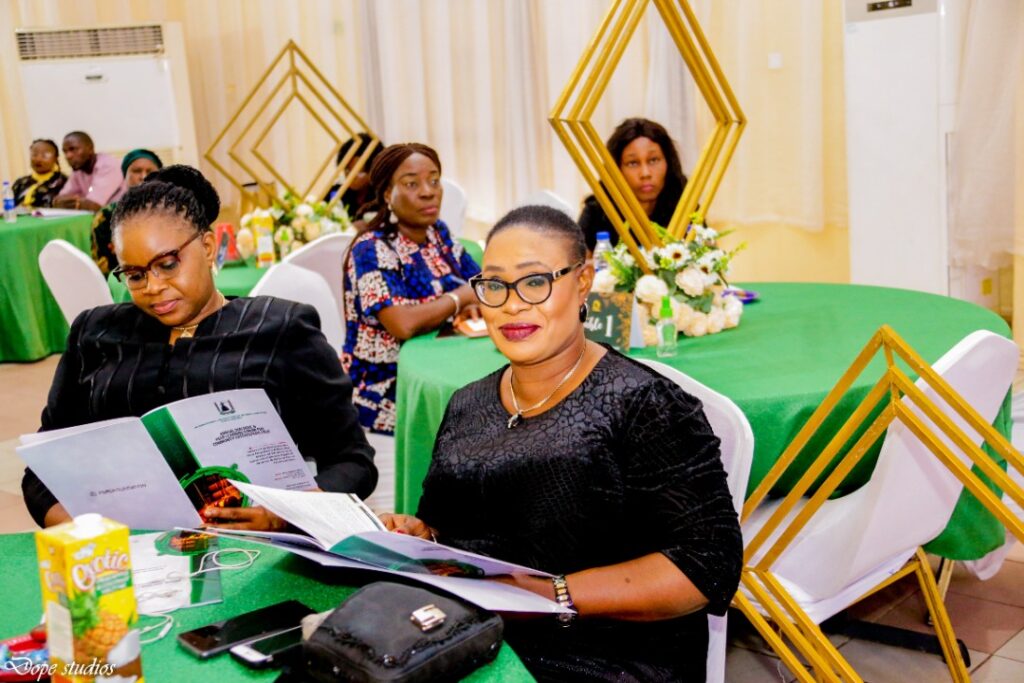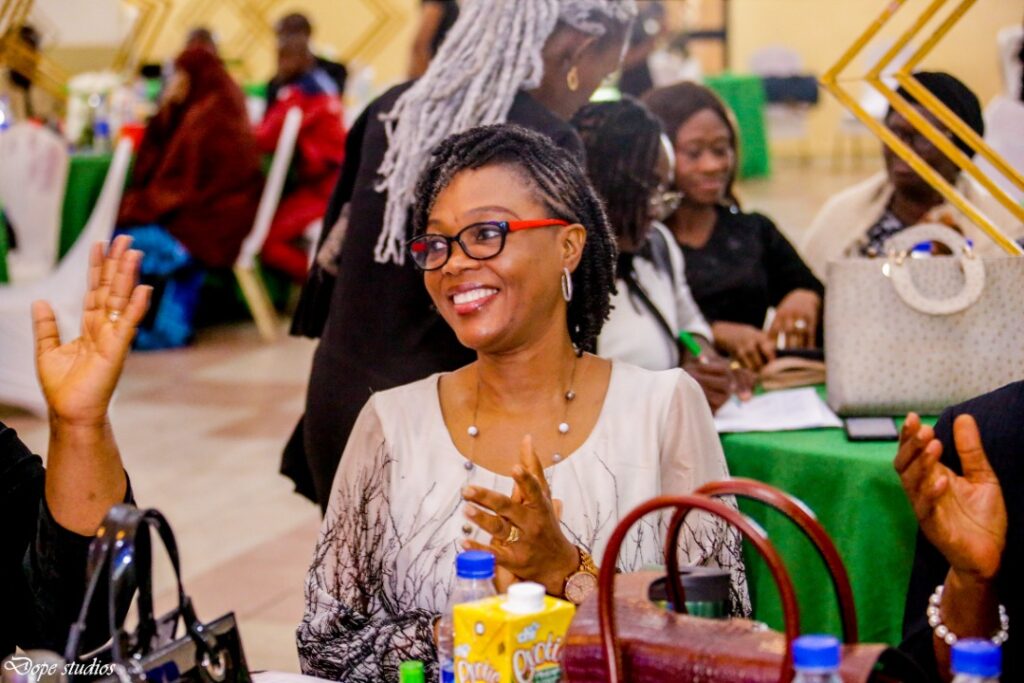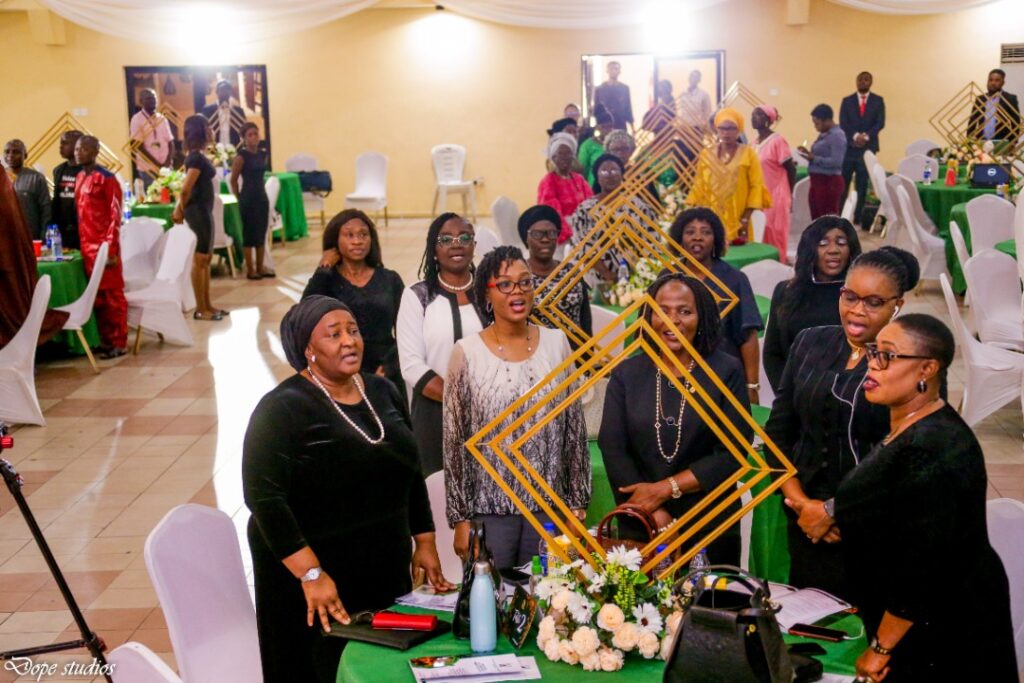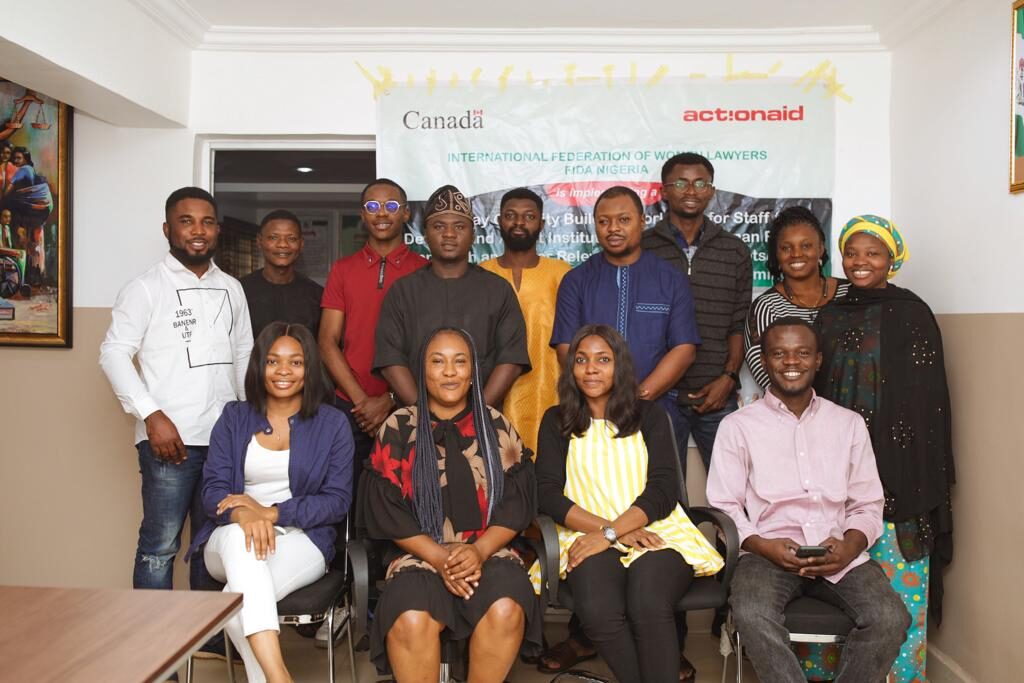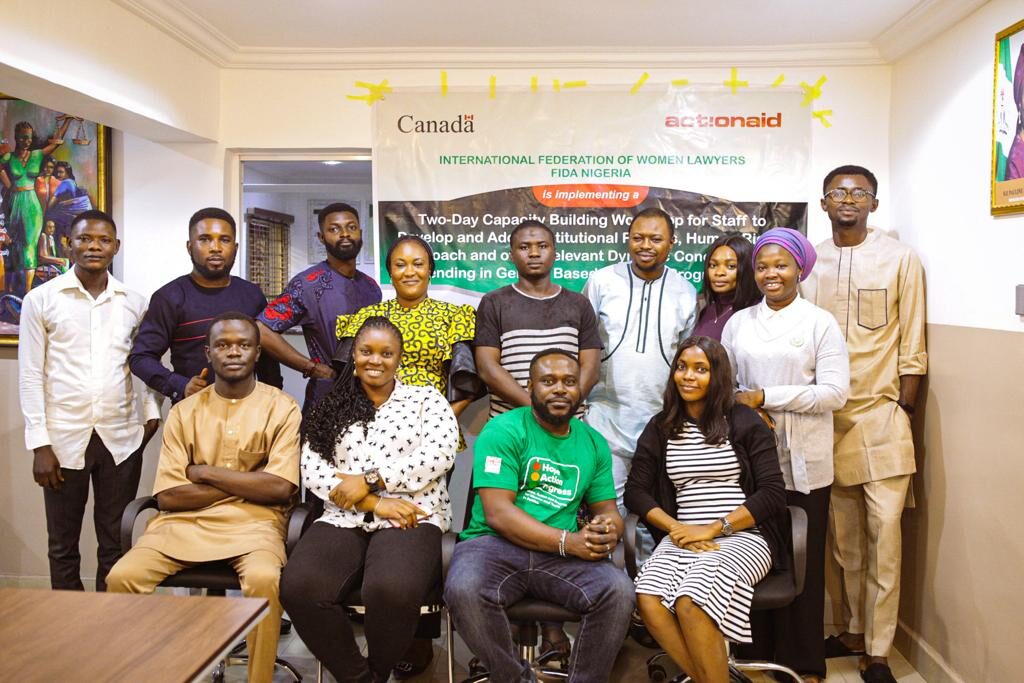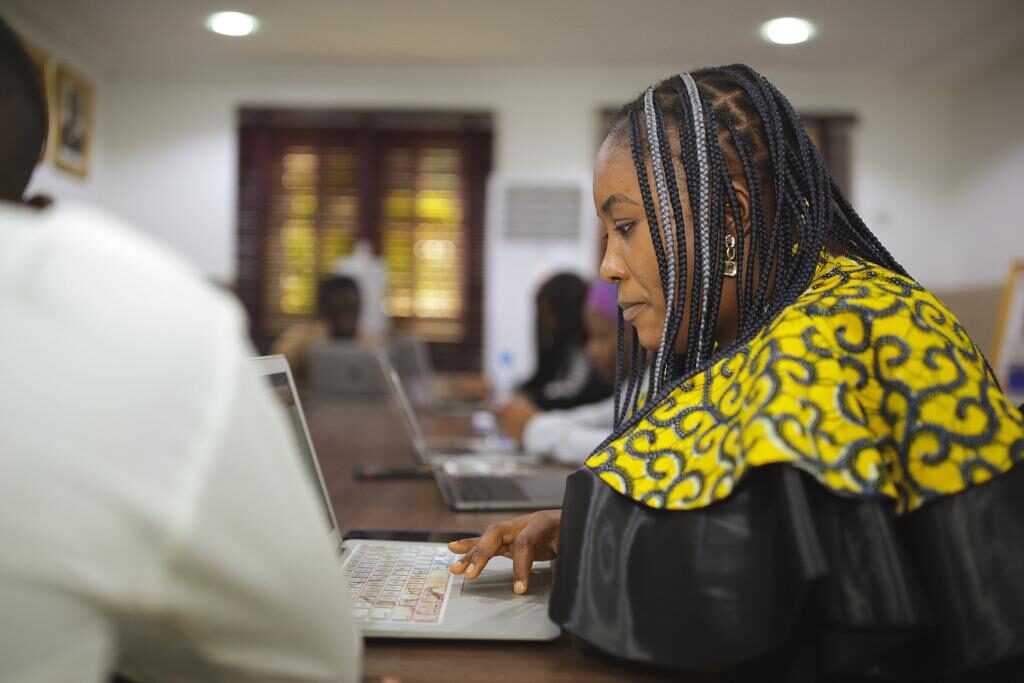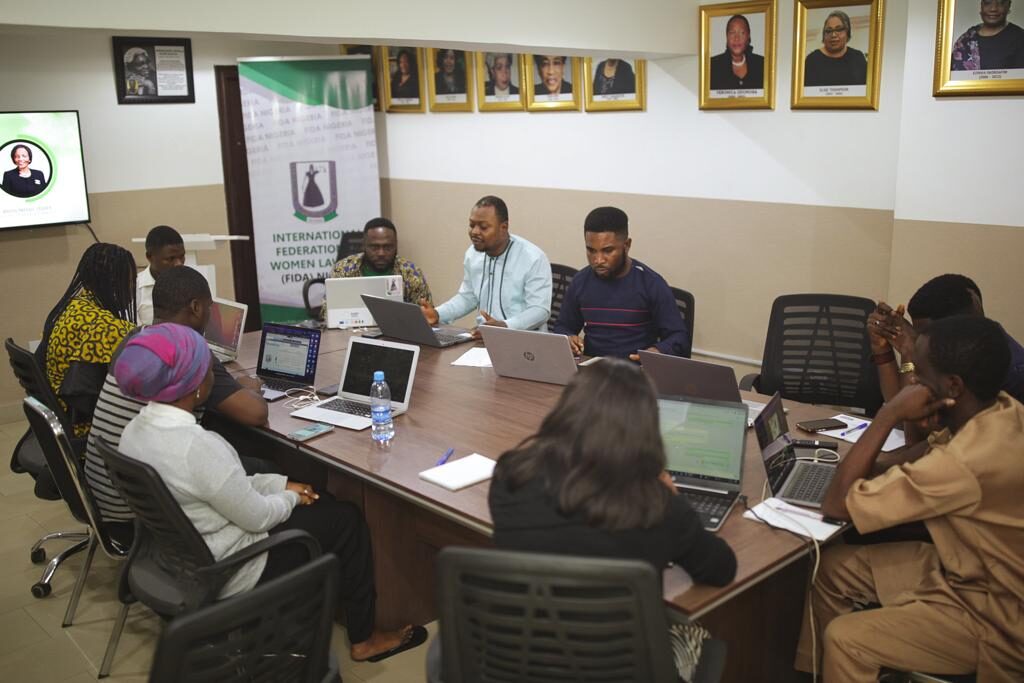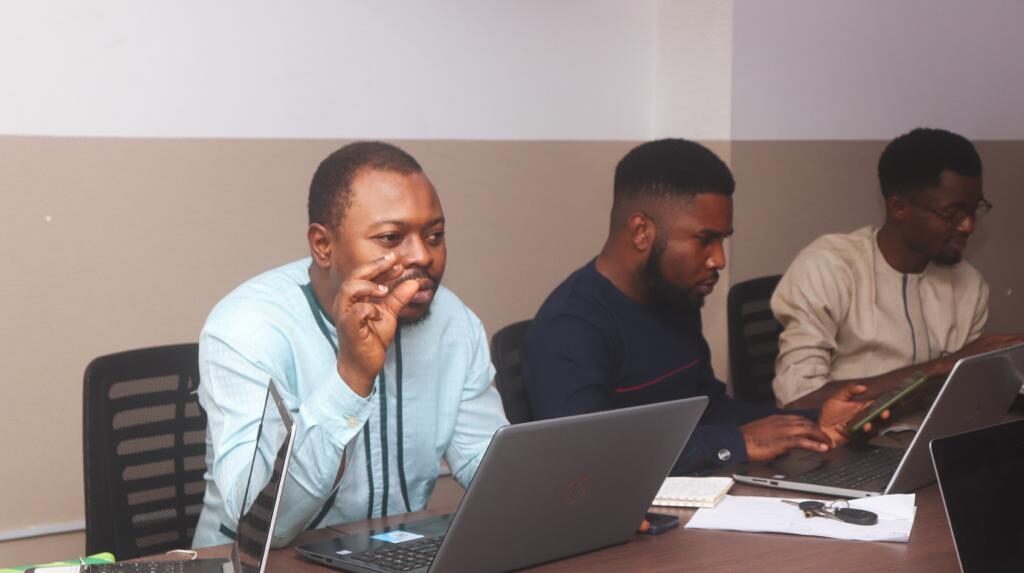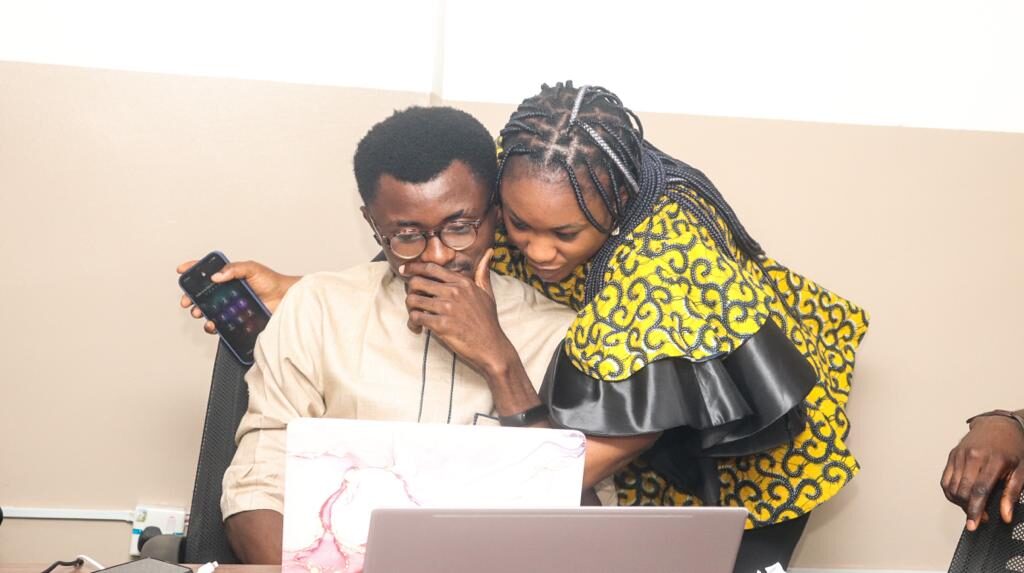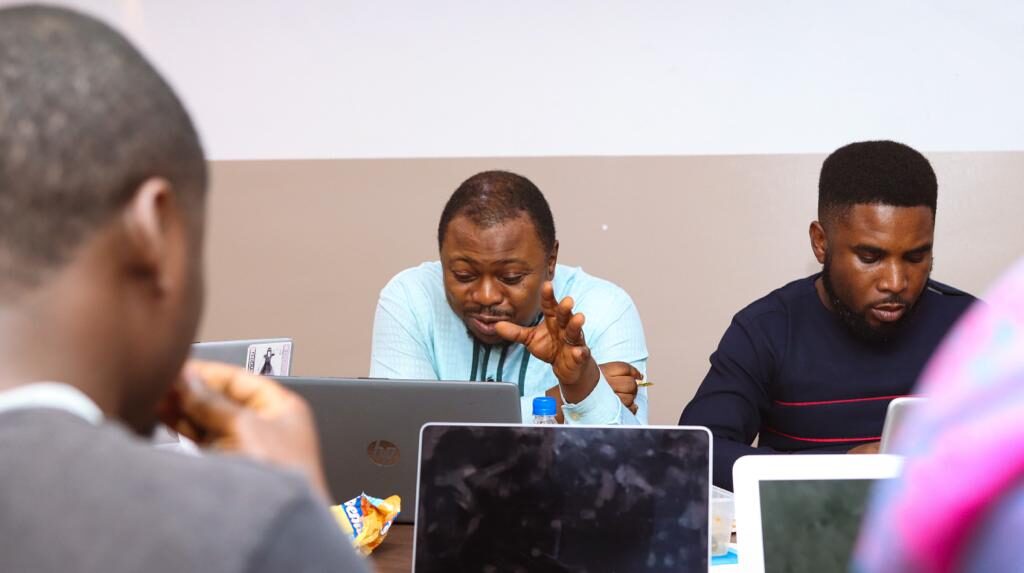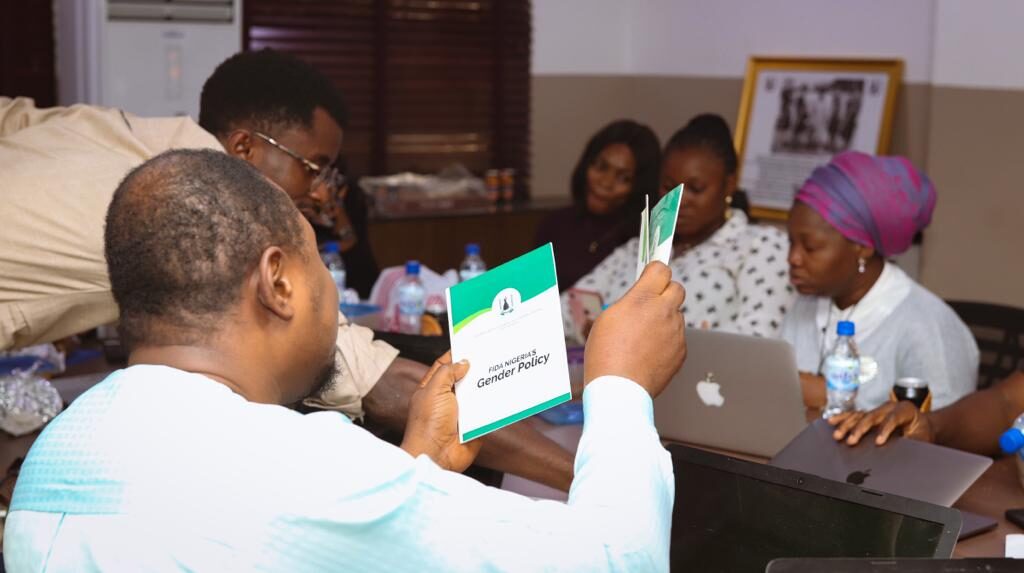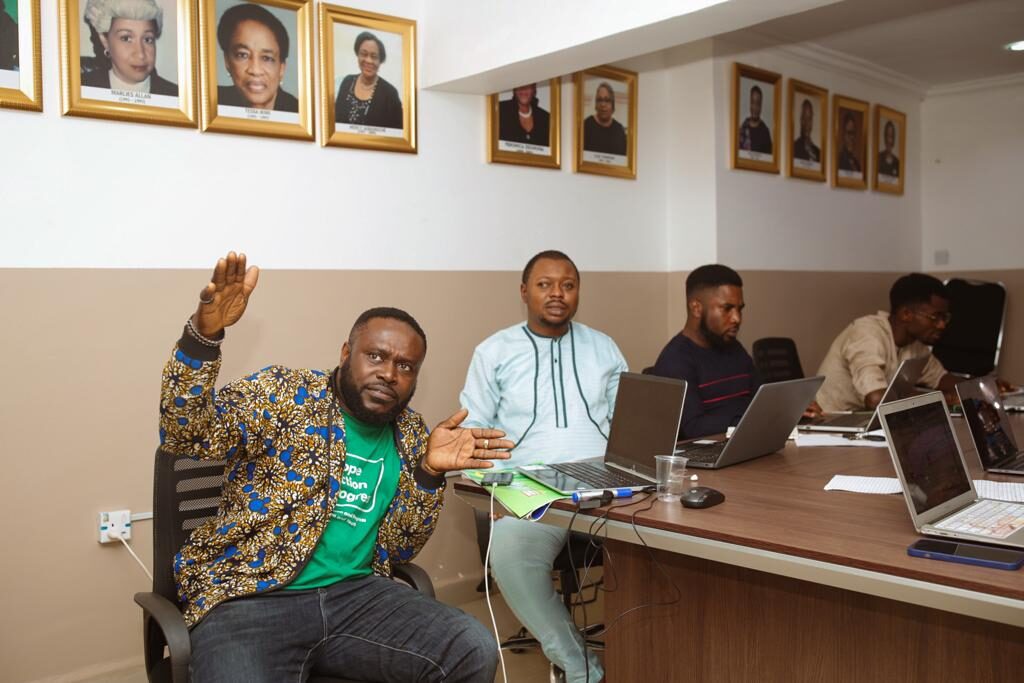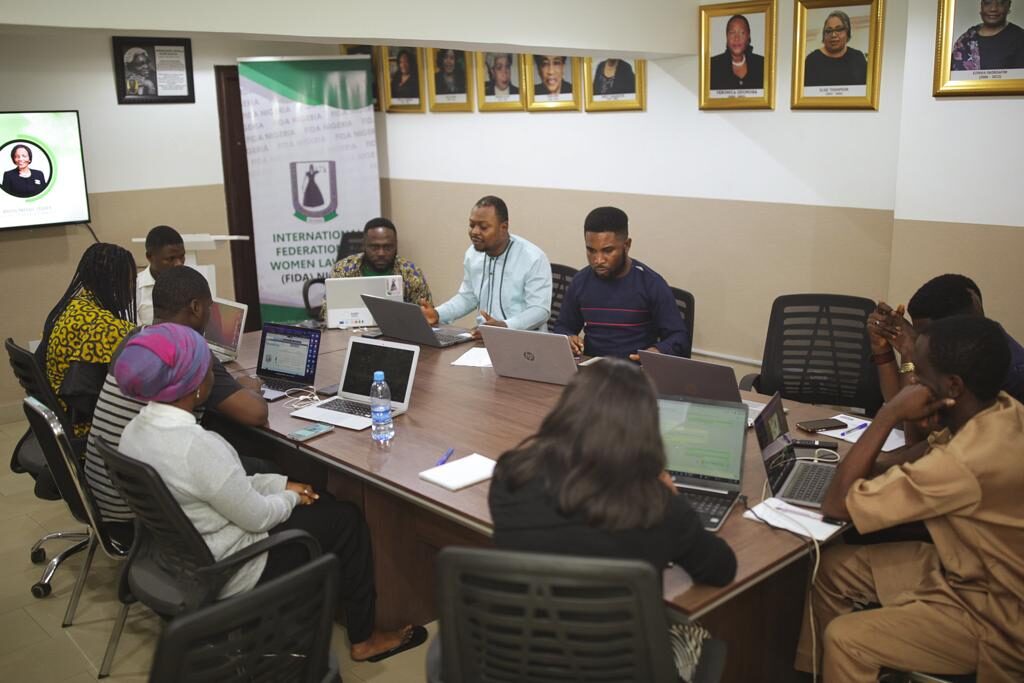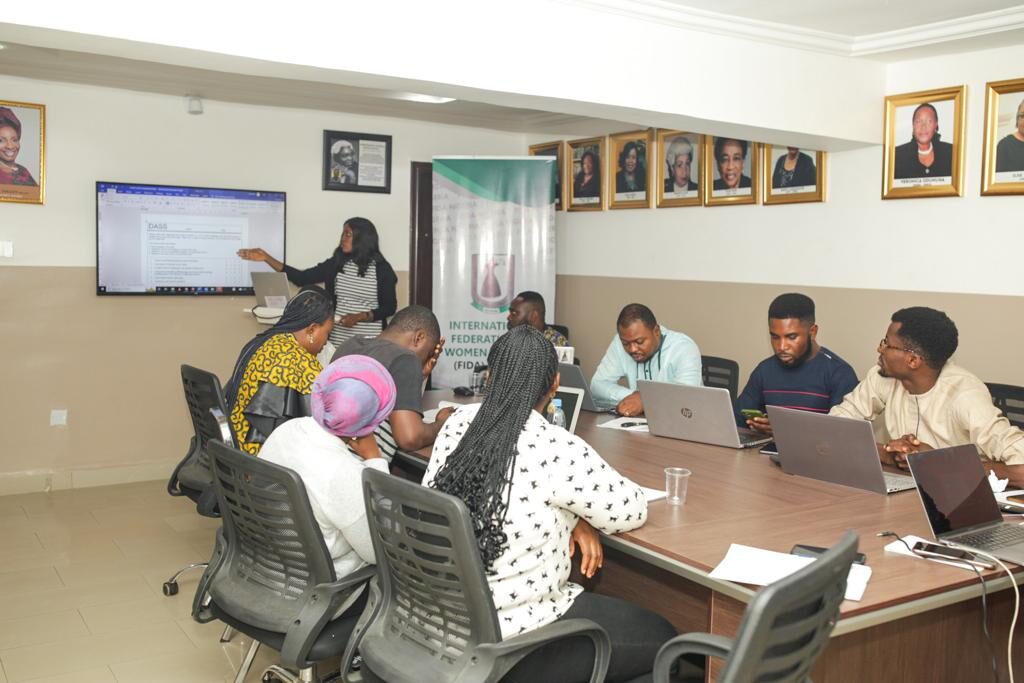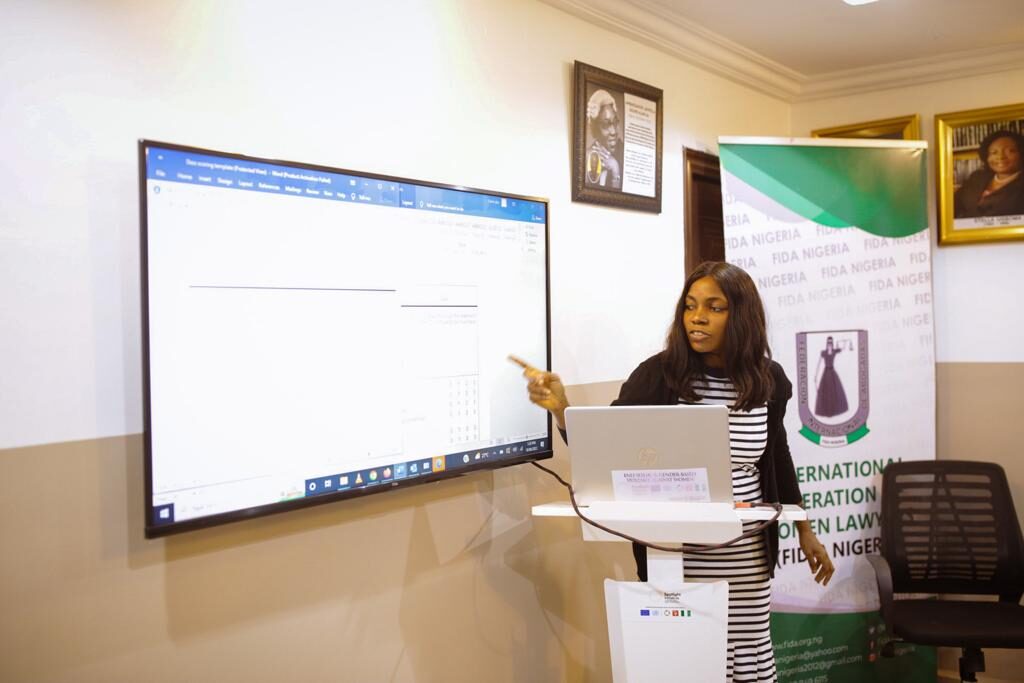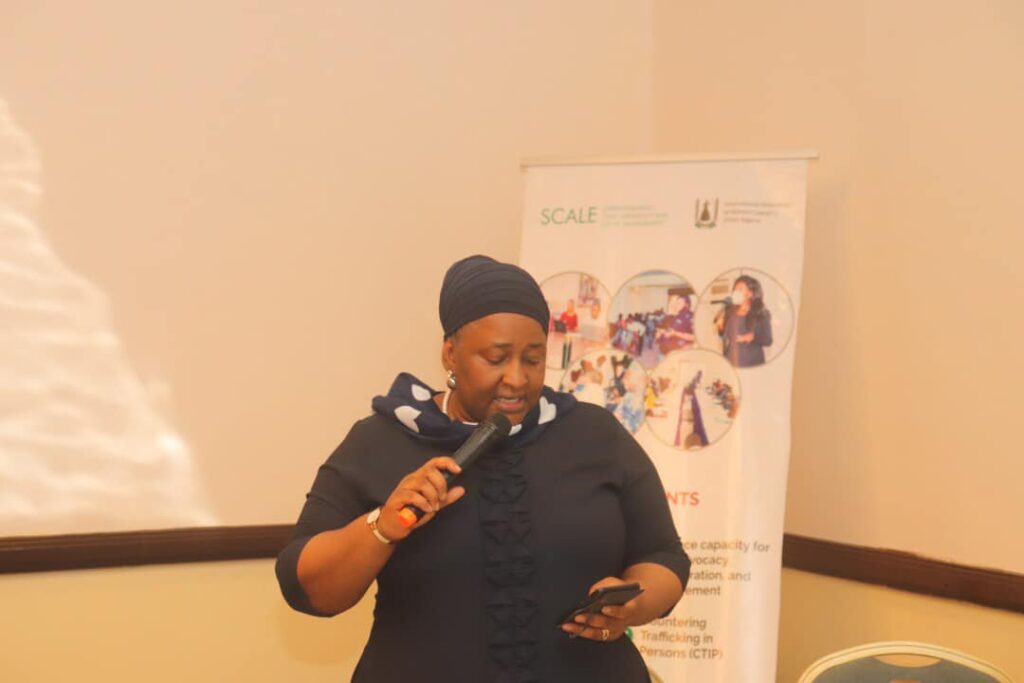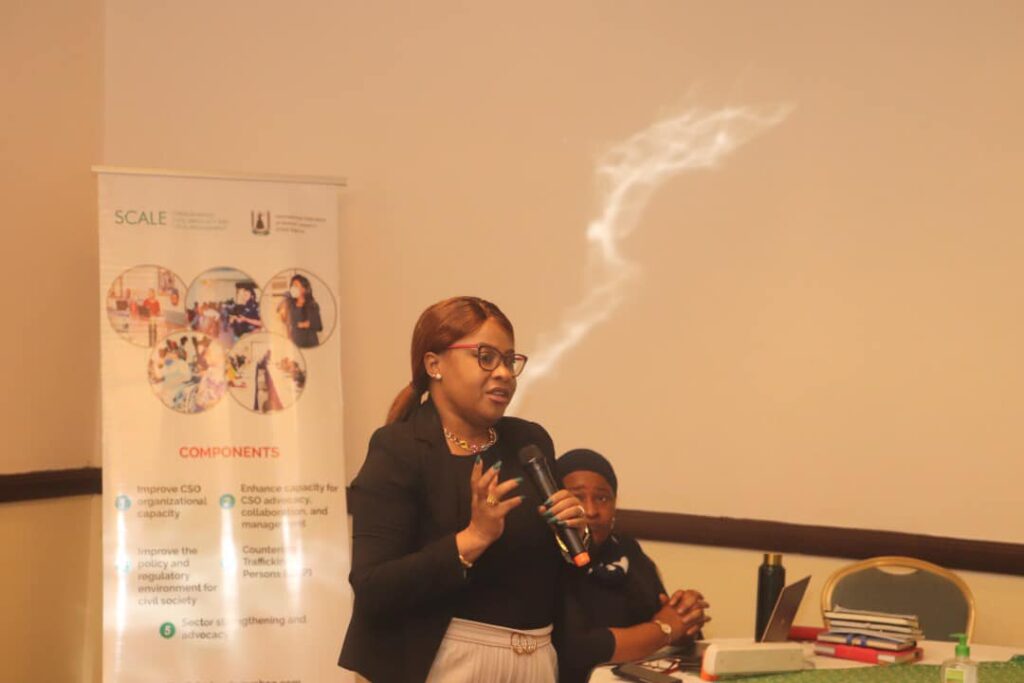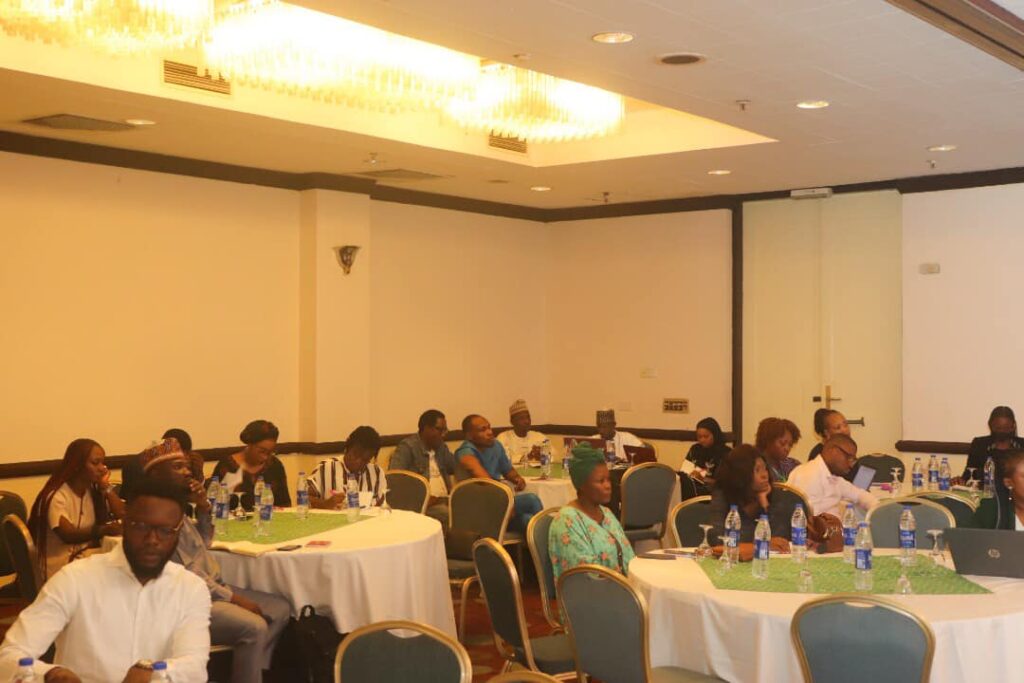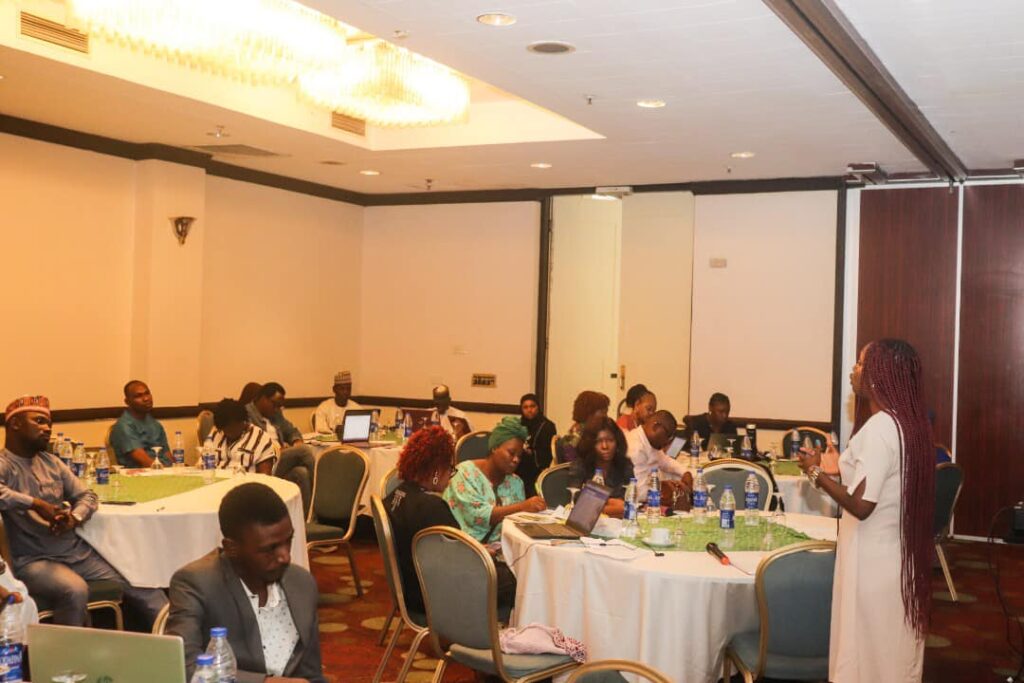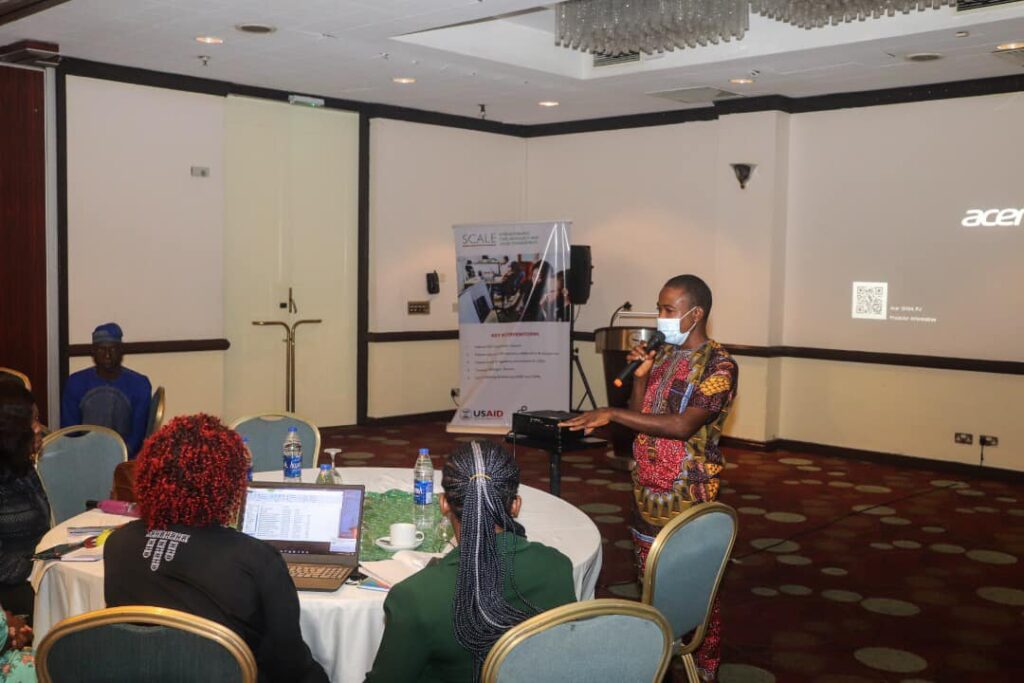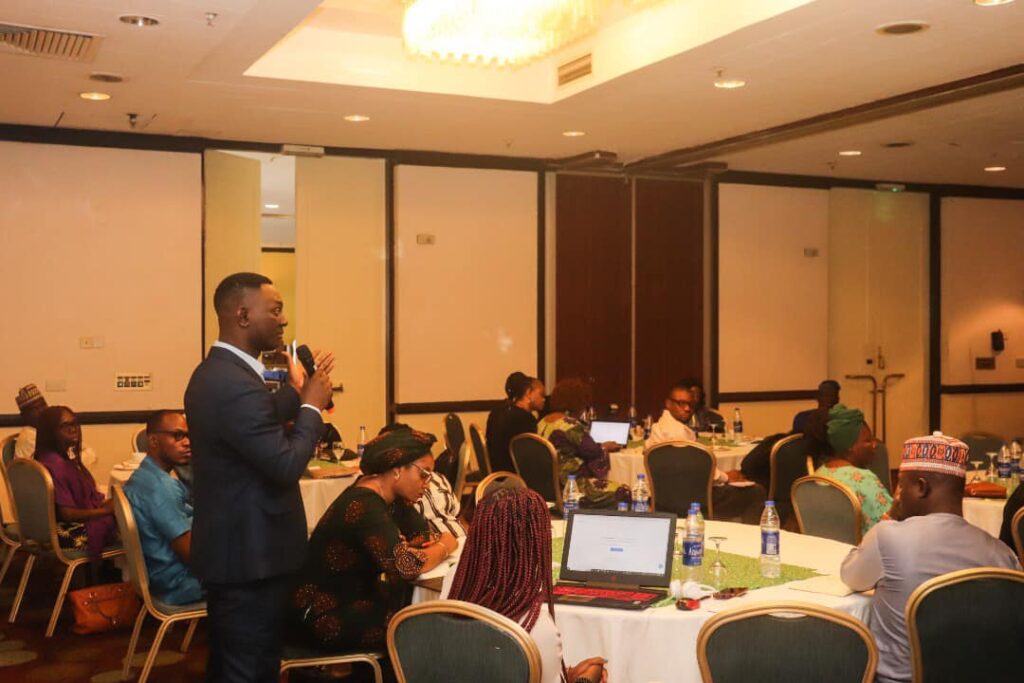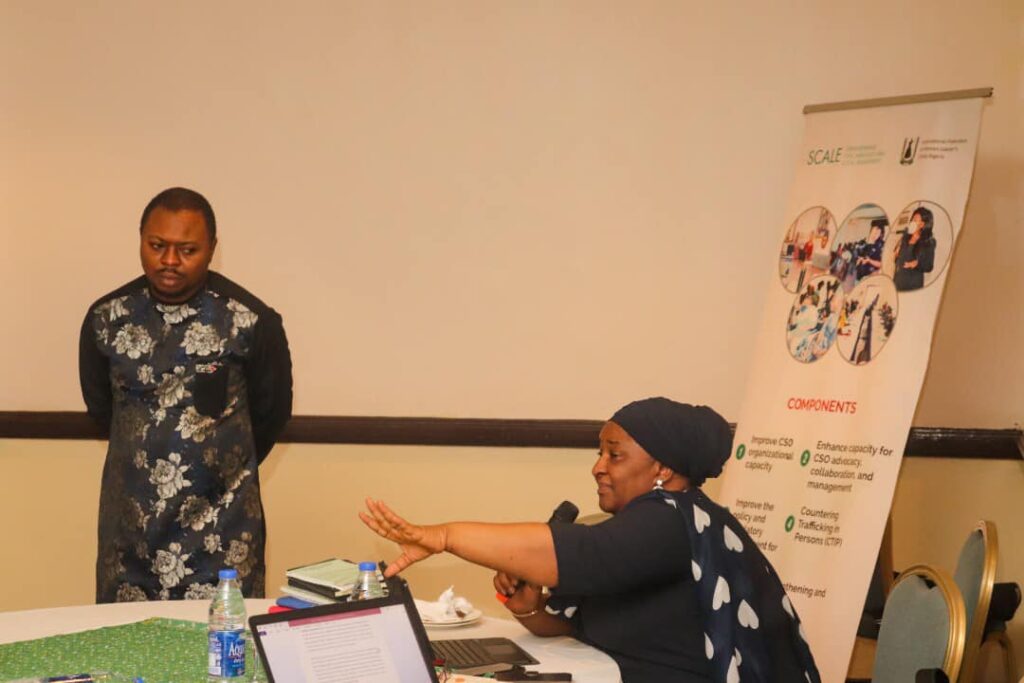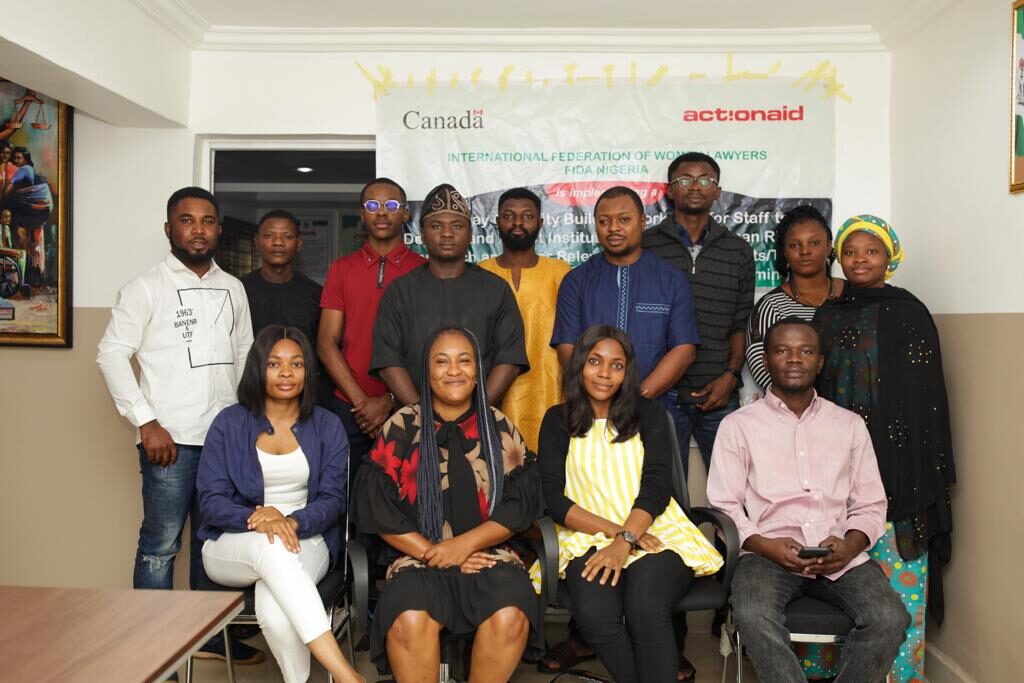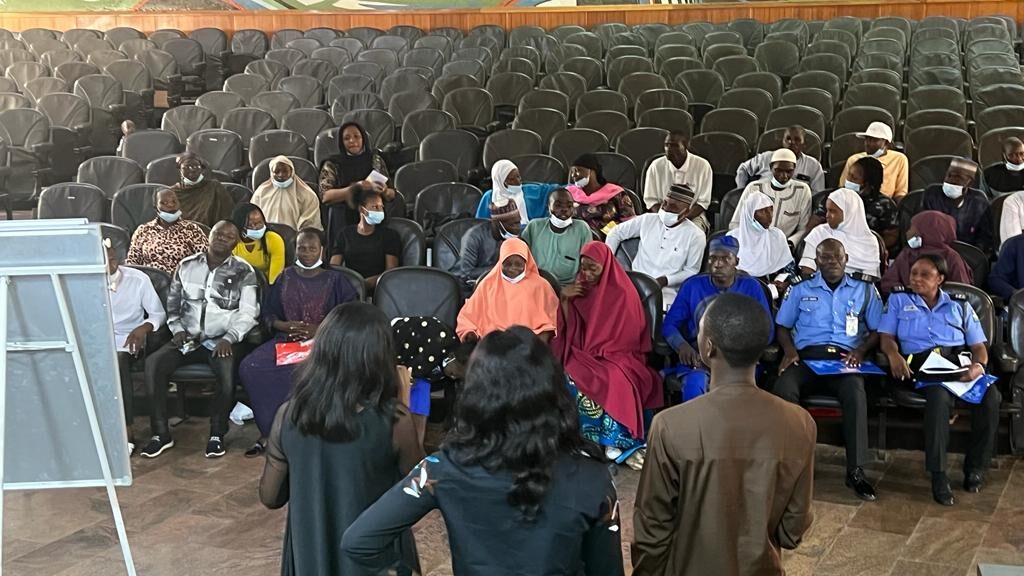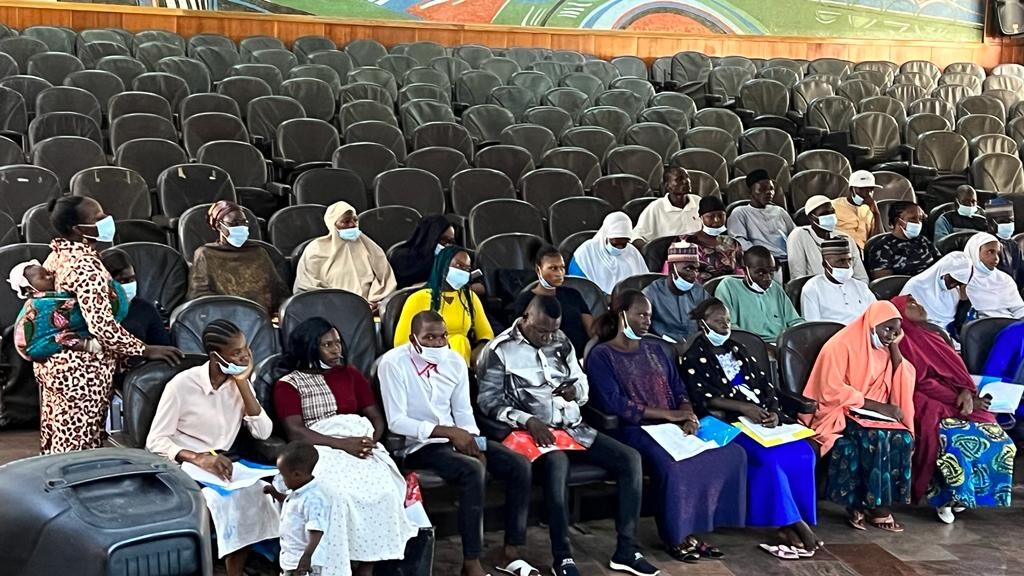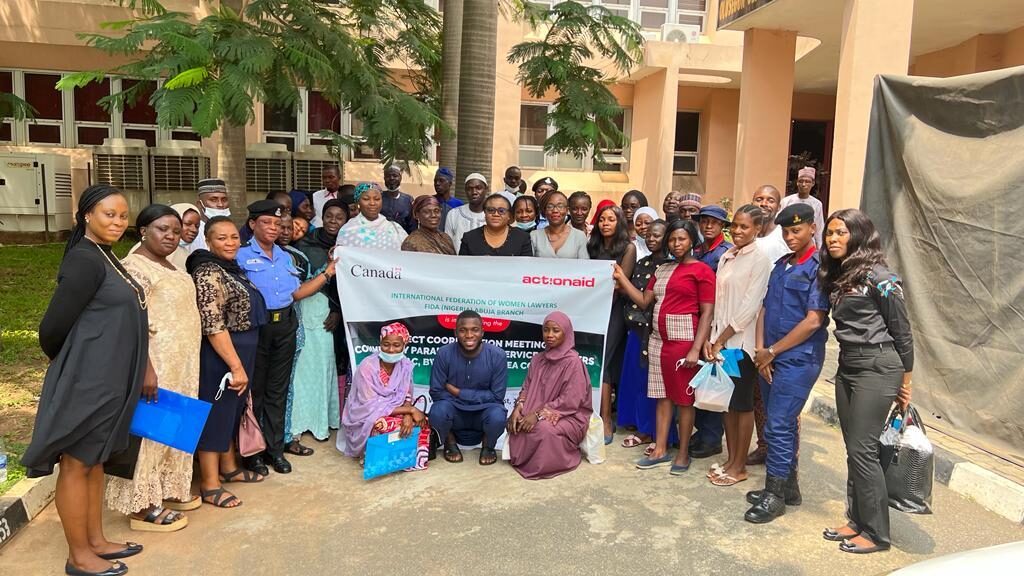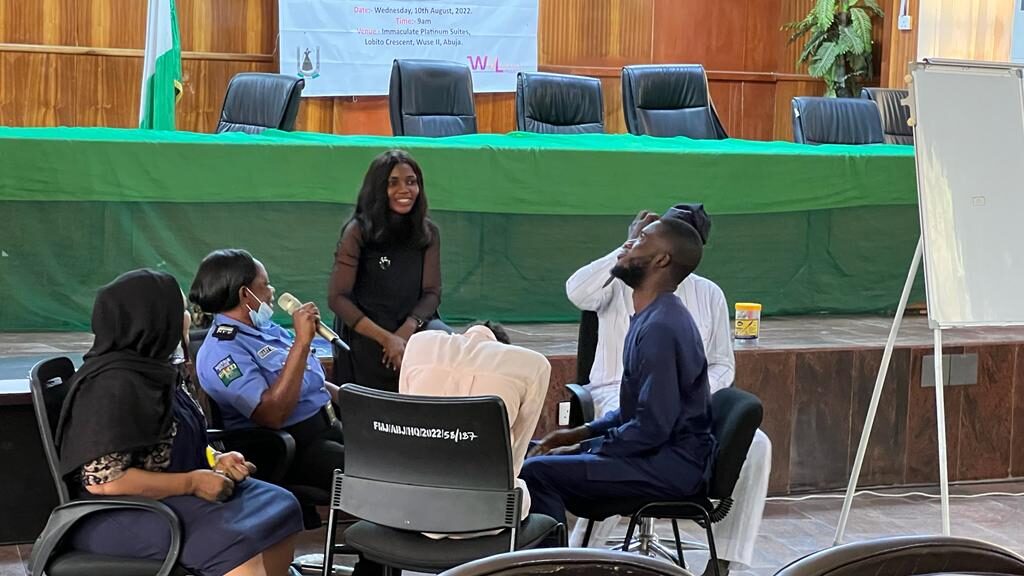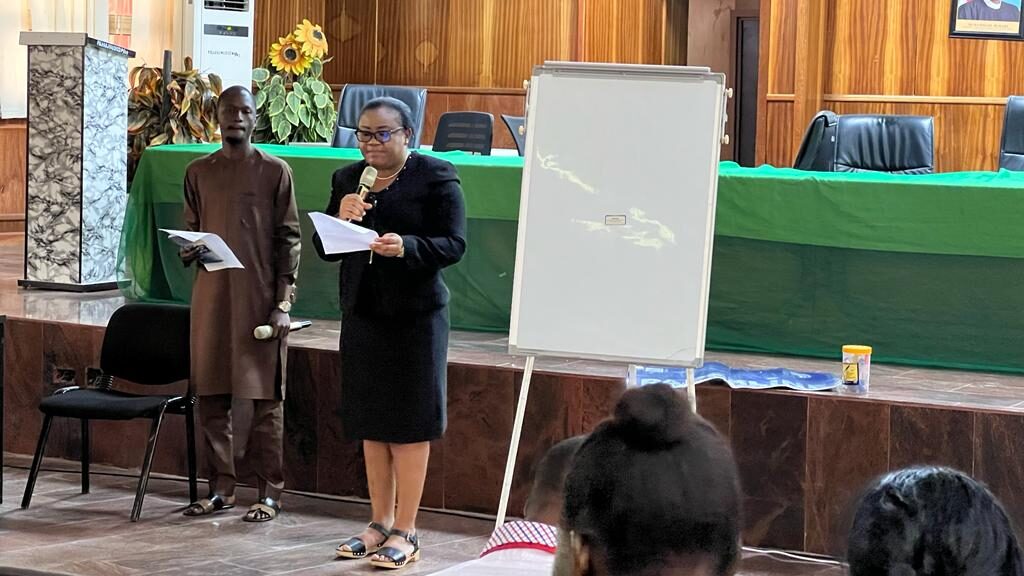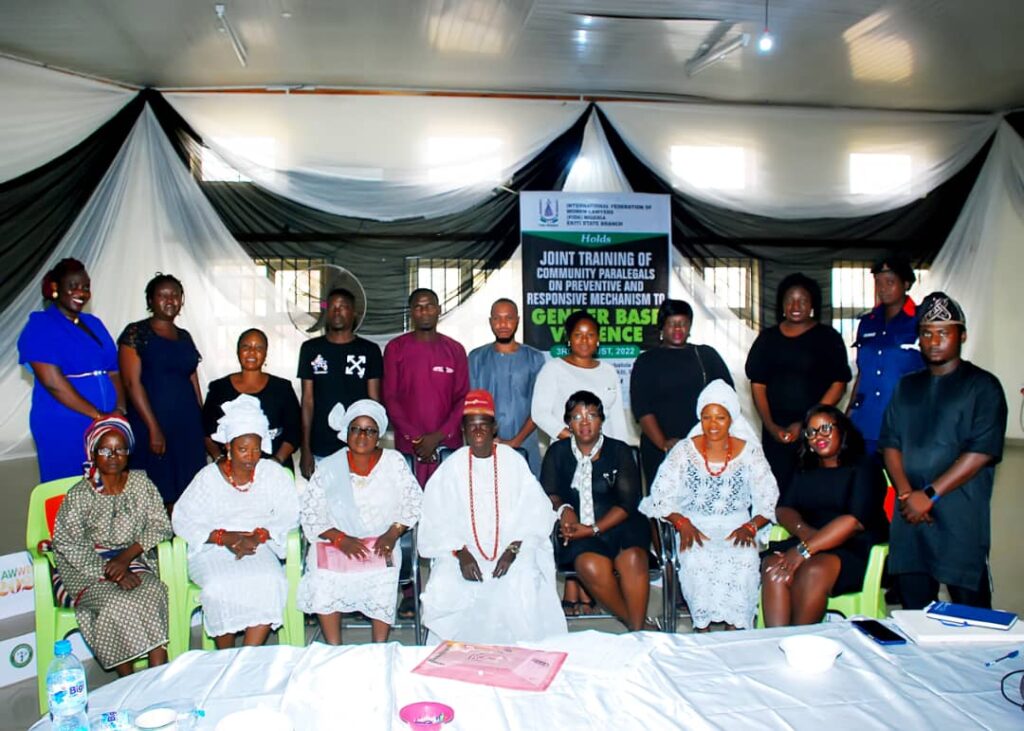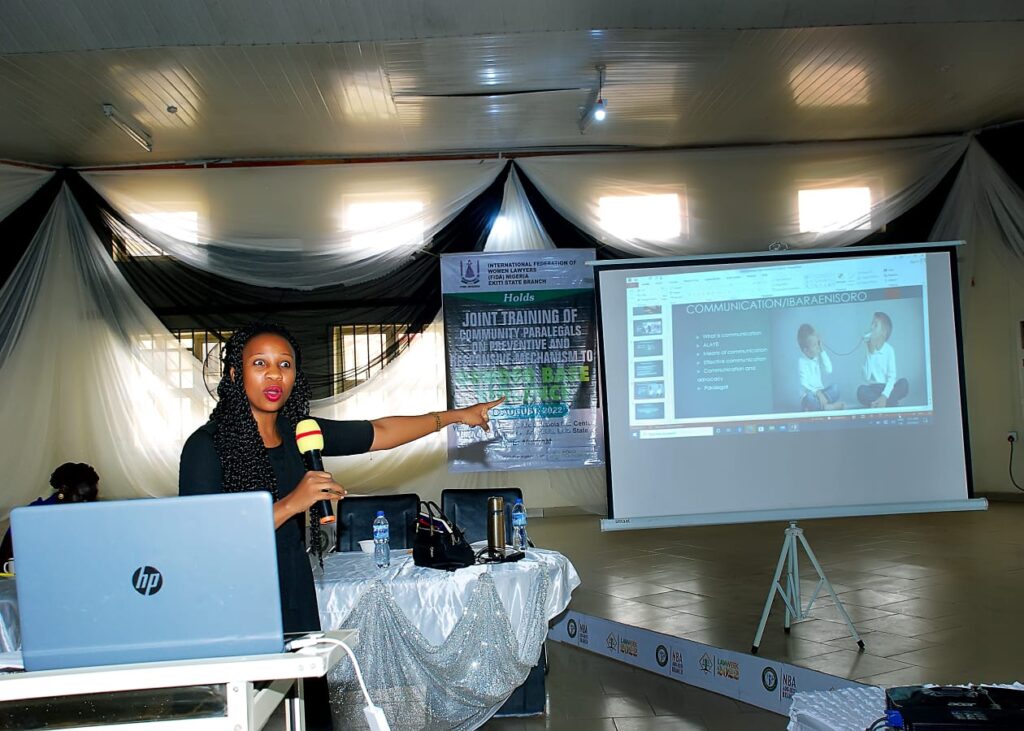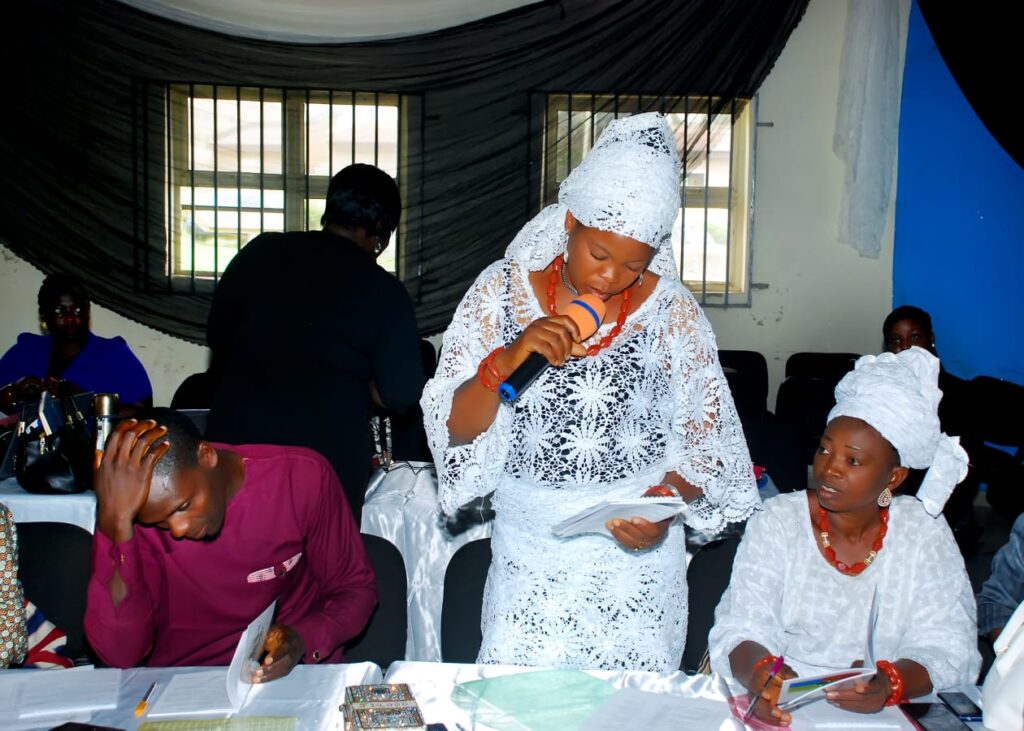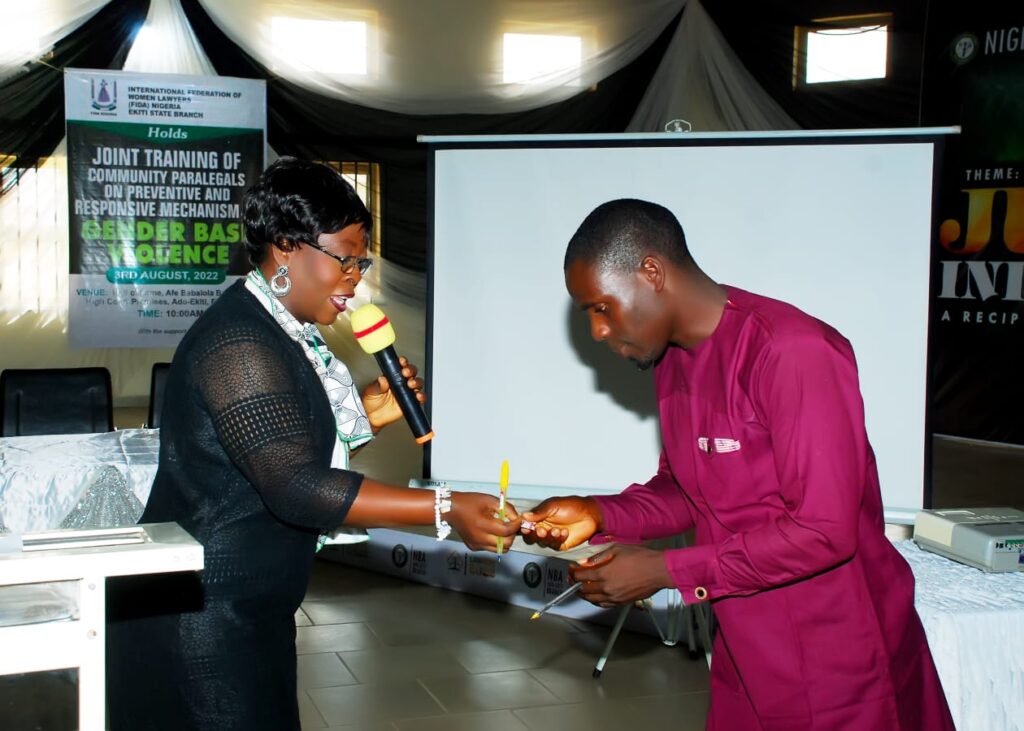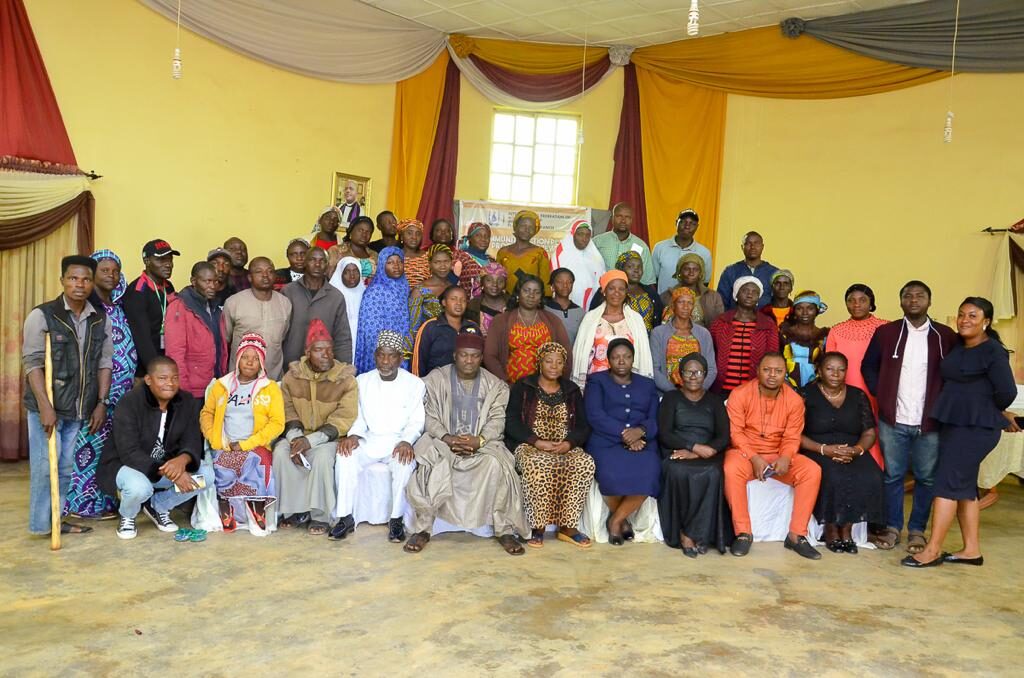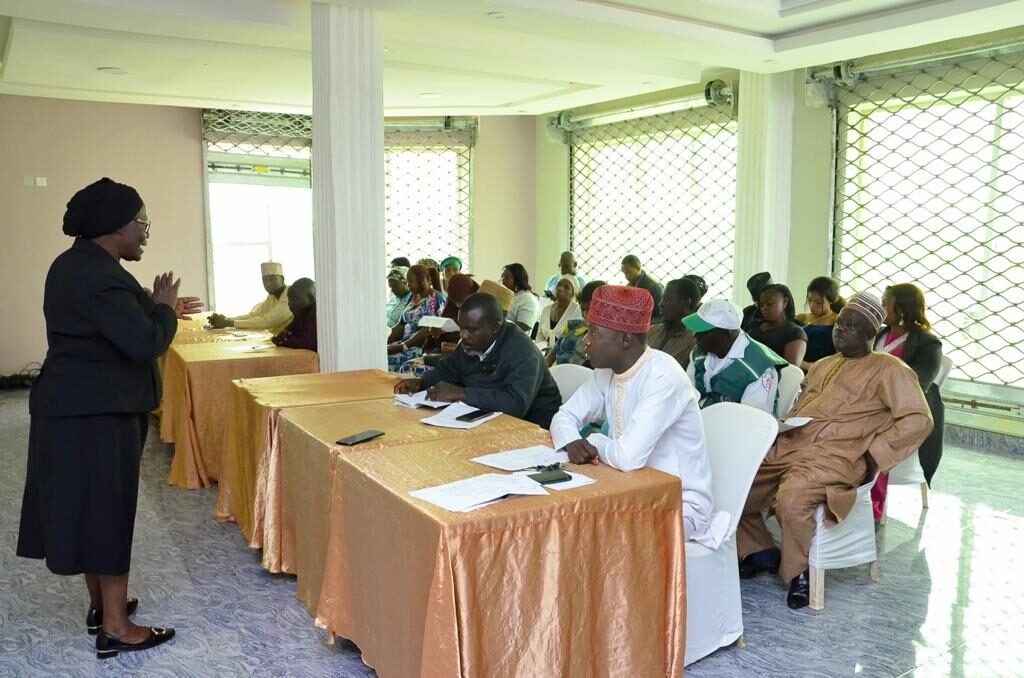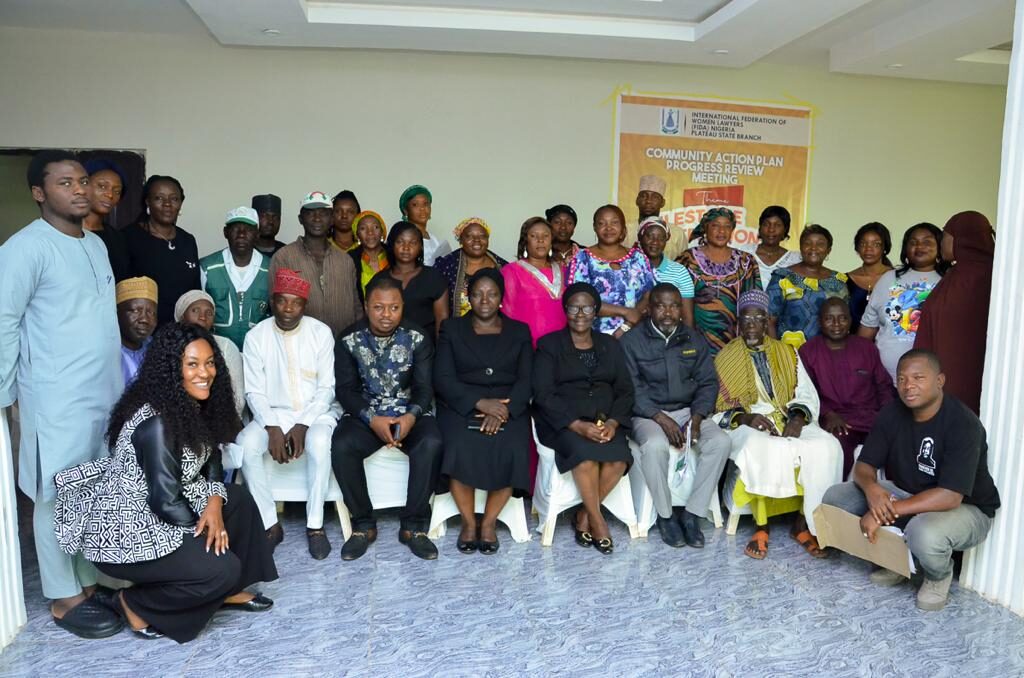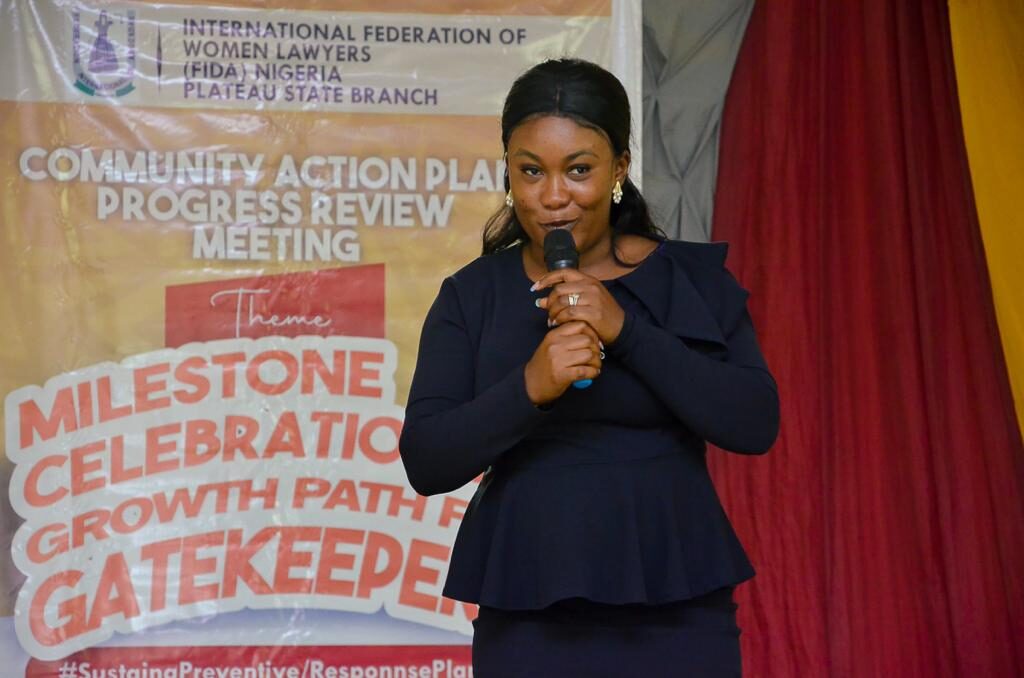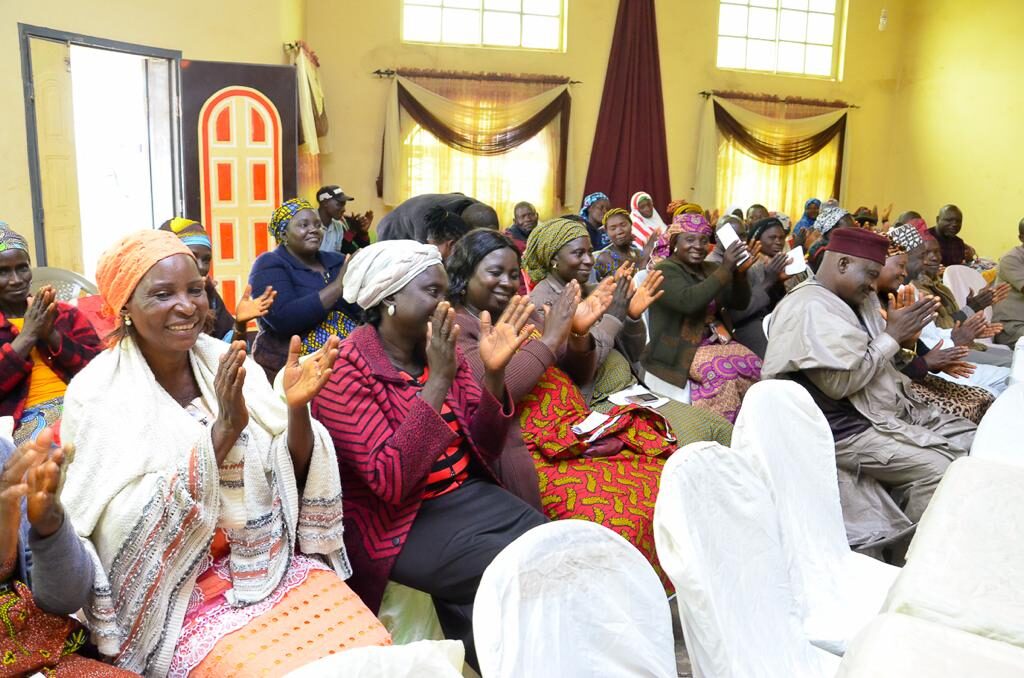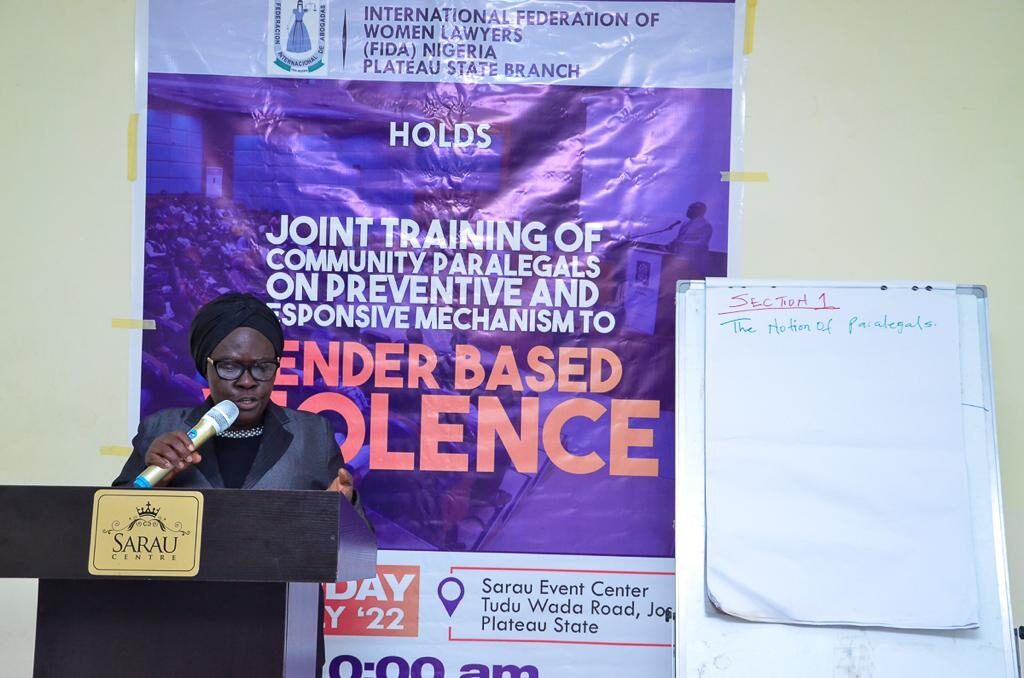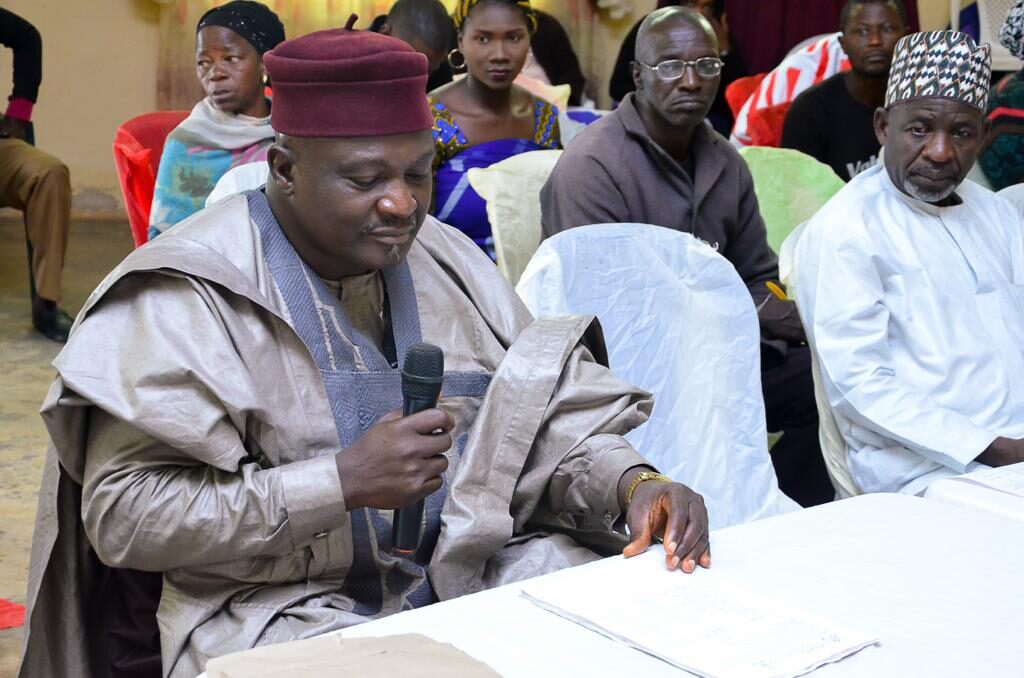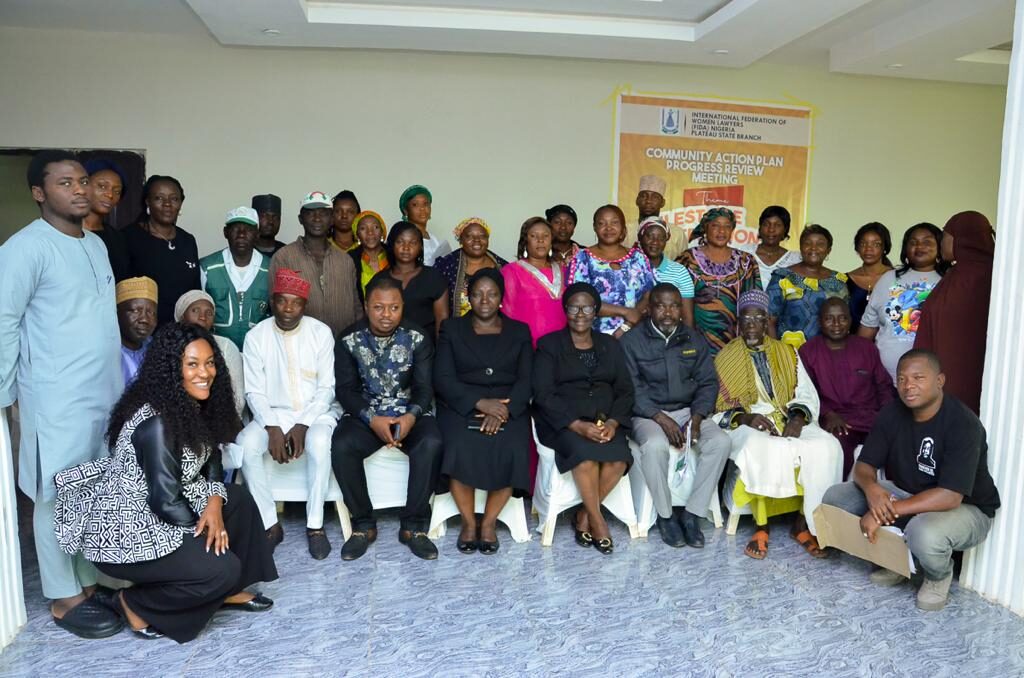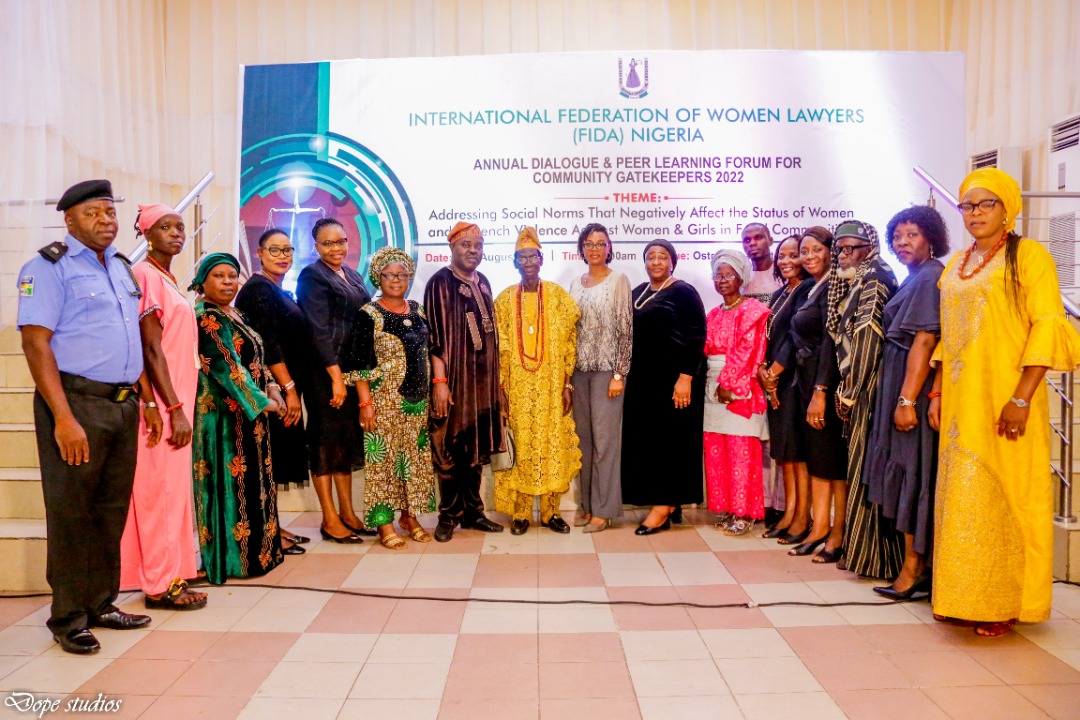
FIDA Nigeria Annual Dialogue & Peer Learning Forum for Community Gatekeepers
Since 2020 FIDA Nigeria with support from Ford Foundation has been implementing a project tagged “Work with Gate Keepers including Women Leaders, Youths, Religious Leaders and Traditional Rulers to Address Social Norms that negatively affect the status of women and entrench violence against women and girls” aimed at mitigating incidences of gender-based violence in six communities across the project focal states including Ekiti, Lagos and Plateau states by altering social norms, beliefs and traditional practices in the communities through community-led change.
As the project comes to an end, FIDA Nigeria as part of activities towards finalizing its closure on Thursday, 25th August 2022 held an “Annual Dialogue & Peer Learning Forum for Community Gatekeepers in addressing social norms that negatively affect the status of women and entrench violence against women”.
The purpose of this national dialogue was to upscale the previous dialogues organized at state level to a national level with the aim of providing a platform for learning, improved intervention approaches and collaboration amongst Gatekeepers in the project focal communities towards ending gender-based violence as well as boost self-assessment/stocktaking through peer reviews towards ensuring the sustainability of the intervention and to confer awards on selected community champions who have contributed in ending GBV in their communities.
As part of our sustainability plan for this intervention, communities have developed & created action plans to prevent prevalent harmful, religious & cultural practices experienced by women & girls in the communities they are domiciled. This was achieved through capacity-building activities on leadership and GBV issues, town hall meetings, sensitization & awareness campaigns in communities on the prevention of this menace and selection of community champions on SGBV among others.
The event ended on a high note with the acknowledgment of giant strides taken by the communities, the presentation of awards, group photographs and networking amongst stakeholders.
Fida Nigeria confirms the successful implication of this project in the achievement of project objectives and overwhelming satisfaction and happiness of target communities
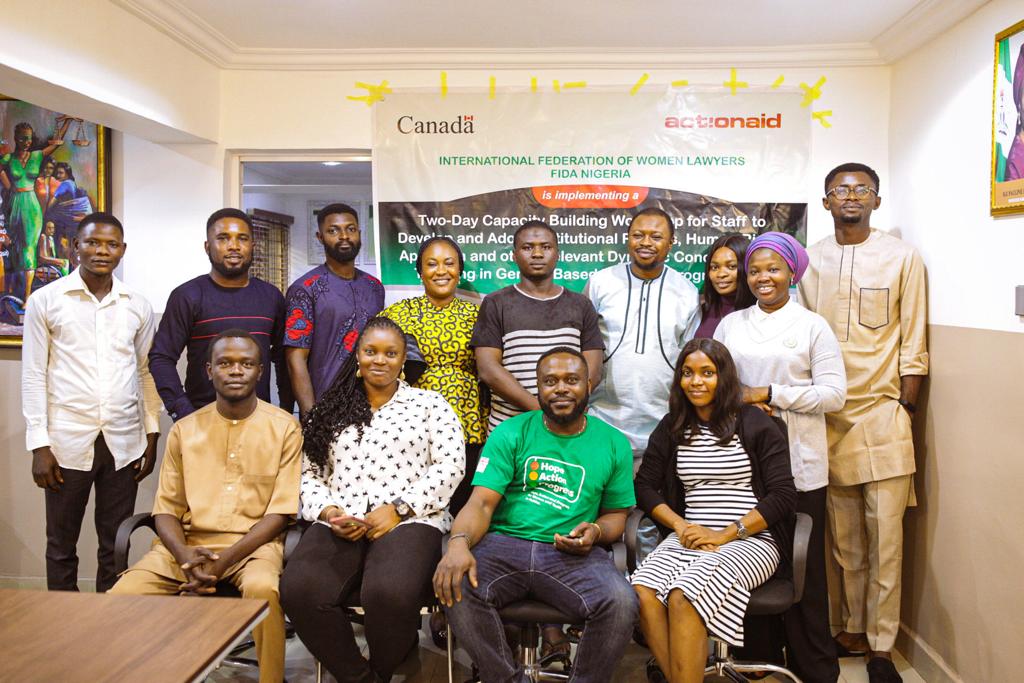
2-Day Staff Capacity-Building Training
On 18th August 2022, FIDA Nigeria with support from Action Aid as part of activities under the Women, Voices, and Leadership (WVL) Project commenced a 2-day staff capacity-building training.
The training objective aimed at institutional strengthening focused on the development and adoption of institutional policies, human rights approach, and other relevant and dynamic concepts/tools trending in gender-based violence programming.
In addition, staff of the organization also had a step down of the Action Aid Psychosocial Support Training as part of efforts aimed at improving GBV responses for survivors.
At the end of the training, staff were trained on the usage of the DASS Screening tool and soft copies of the screening tool deployed across all departments whilst hard copies will be resident in the Legal and Counselling Department of the Organization.
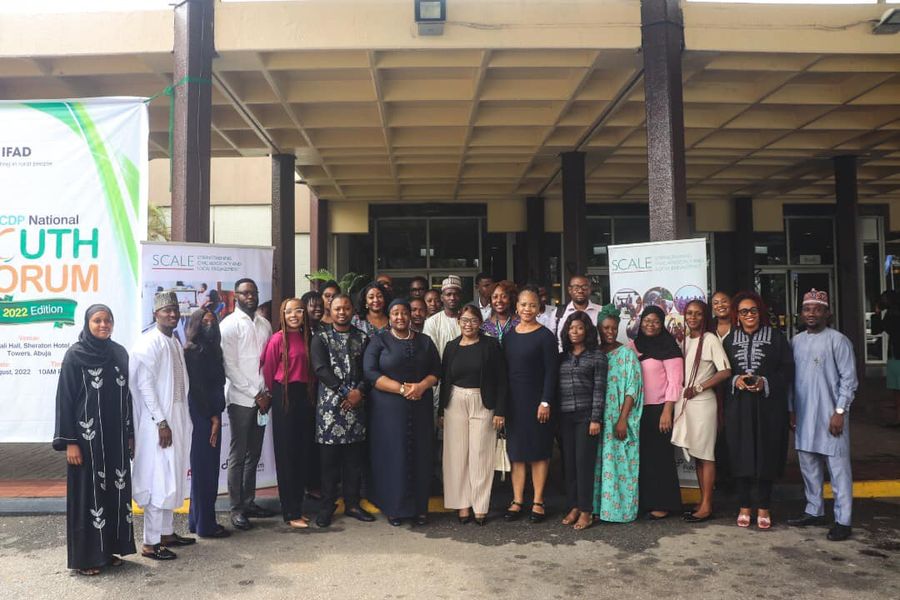
FIDA Nigeria Bi-Annual Coordination Meeting
On the 16th of August 2022, Palladium in collaboration with FIDA Nigeria as one of its resource partners held its 2nd Bi-Annual Coordination meeting with some key stakeholders in the fight against Sexual and Gender-Based Violence (SGBV), Child Early and Forced Marriage (CEFM) in Nigeria as part of activities under the SCALE project.
The meeting was to track progress, experience sharing by some key stakeholders, and further advance collaboration between frontline practitioners, SCALE resource partners, and relevant government entities across the SGBV and CEFM sectors in Nigeria.
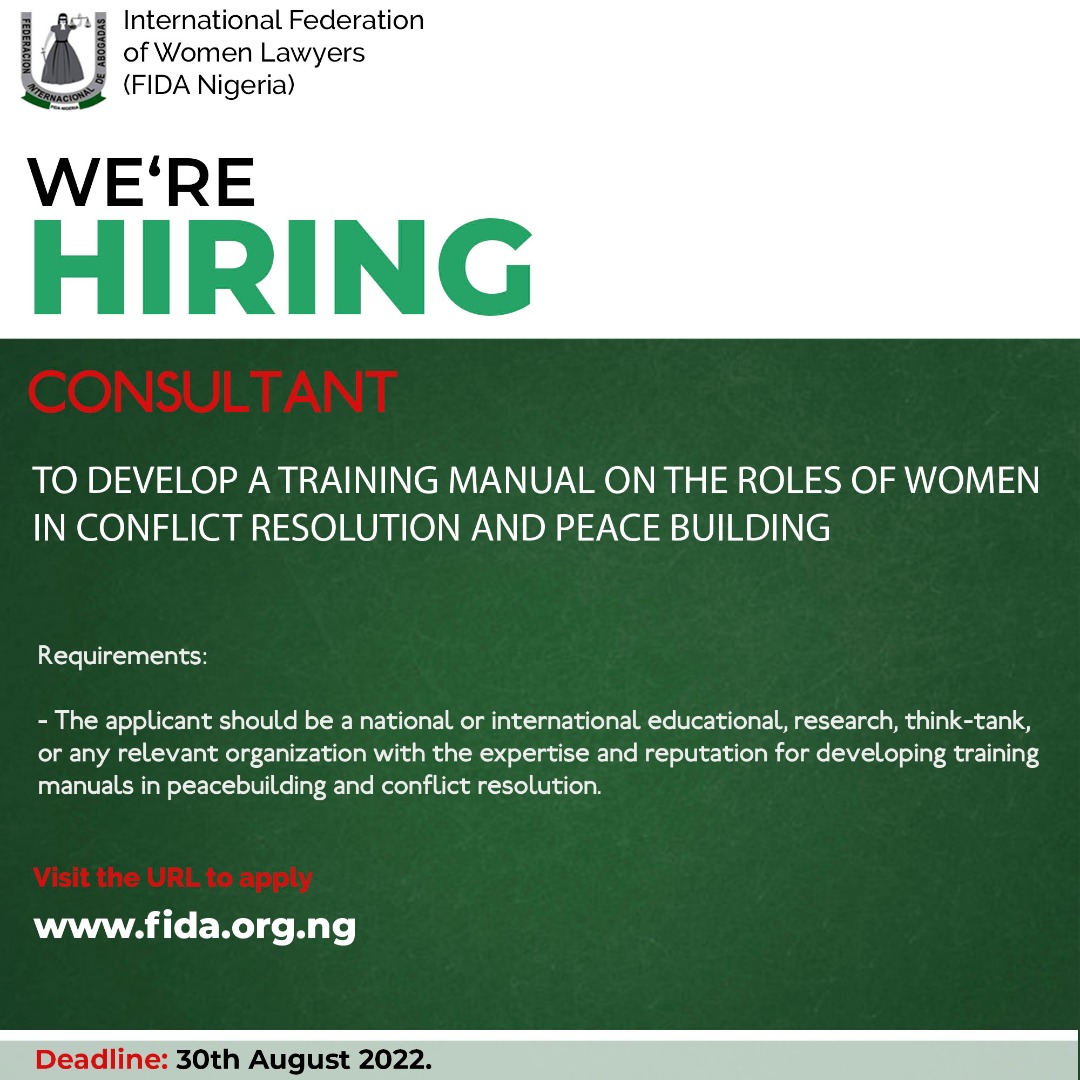
Call For Expression of Interest
Call For Expression of Interest To Develop A Training Manual On The Roles Of Women In Conflict Resolution And Peace Building
The International Federation of Women Lawyers (FIDA) Nigeria is a non-profit, non-governmental organization made up of over 4,000 female lawyers with several years’ experience in utilizing the law to address social problems in Nigeria. The organization’s mandate is the enhancement, promotion, protection and preservation of the rights and welfare of women and children in Nigeria FIDA Nigeria implements key projects and activities aimed at providing access to justice to indigent persons, particularly women and children.
RATIONALE
Violence and conflict are deeply gendered as people’s ideas and attitudes towards violent conflict and how they experience it depends on gender relations, roles and norms. In many societies, the ability to use violence is attributed to men, and often linked to ideas about manliness and masculinities. The use of violence is also linked to unequal power relations.
These unequal power relations has created relations of dominance of men over women and men over other men, which are upheld and justified through social, moral, cultural, religious, political and economic norms. Conflict has the potential to reinforce the ”unequal dualism” between women and men by amplifying masculine notions of strength, determination and fearlessness versus depicting women as passive mothers or as supporting and caring wives in need of protection.
In indigenous Nigeria Communities, women are rarely included in decision-making circles let alone in dialogue around peace and security strategies. This is as a result of cultural characterization of the gender roles that women in such communities have been saddled with. Due to scores of men killed during conflict, women are forced to assume head of household in most homes, but continue to face structural and cultural barriers to economic opportunity. Despite the persistent exclusion of women from social and political power to alter these conditions, women nonetheless do regularly function as parties to conflicts as negotiators, informants, mentors and as members of non-armed groups.
As noted in the Platform for Action of the Fourth United Nations World Conference on Women, “while entire communities suffer the consequences of armed conflict and terrorism, women and girls are particularly affected because of their status in society as well as their sex”. This has caught women in a vicious paradox because while, on the one hand, they are the main civilian victims of conflicts, they are, on the other hand, often powerless to prevent them, excluded from the negotiating tables when it comes to their resolution and marginalized in the post-conflict reconstruction and reconciliation efforts. The general exclusion of women from decision-making positions prior to, during and following violent conflict, reinforces their victimization.
Civil Society Organizations have begun to consider that women can play a particularly important role in the prevention and resolution of conflicts and have appreciated the positive contribution women can make in post-conflict reconstruction and peace consolidation. Hence, empowering women in conflict situations would help prevent gender-based violence such as the abominable crimes of rape, forced pregnancy, sexual slavery and among others.
It is against this background that FIDA Nigeria through her Canada Fund for Local Initiative seeks to urge focal communities to ensure increased representation of women at all decision-making levels, institutions and mechanisms for the prevention, management and resolution of conflicts because we recognize that women’s equal participation in the peace process is an essential condition for establishing lasting peace as they bring alternative perspectives to conflict prevention at the grass-roots and community levels.
To achieve the aforementioned, FIDA Nigeria seeks to train Communities and Grassroots women on Conflict Resolution and Peace Building to enhance their peace advocacy skills, conflict mitigation, response and resolution.
Purpose of Consultancy
FIDA Nigeria is seeking to engage a consultant to develop a training manual on the Roles of Women in Conflict Resolution and Peace Building which will be used for the purposes of promoting the inclusion/participation of Women in Peace Building and Conflict mitigation across focal communities in Plateau State, Nigeria.
This manual will be used to build the capacities of community women leaders through highlighting the importance of verifying escalated security alerts and crisis response mechanisms in target communities.
Duties and Responsibilities
The successful candidate will be tasked to develop a comprehensive manual on the roles of women which shall cover but not limited to the following components/modules: Introduction to Gender and Peacebuilding, roles of women in peacebuilding, Gender Analysis of Conflict and Violence, Skills for Women in Conflict Mitigation and Peacebuilding amongst others as directed by the FIDA project team.
Review and Validation of the Training Manual
In collaboration with the Project Team, the Programme Manager shall review and validate all contents of the training manual. A proposed training manual outline and method for teaching each topic/chapter shall be submitted to fidanigeria@yahoo.com.
The training materials developed must be delivered to the National Programme Manager on a date not later than the deadline for submission via email at fidanigeria@yahoo.com.
Requirements
The applicant should be a national or international educational, research, think-tank, or any relevant organization with the expertise and reputation for developing training manuals in peacebuilding and conflict resolution.
Duration
The assignment is for a period of five weeks from the date of signing the contract.
Fees
The fees for this assignment is subject to negotiation with the selected individual.
How to apply
Qualified candidates should send curriculum vitae and cover letter detailing relevant experiences to the address to the Country Vice-President/National President to hr@fida.org.ng or fidanigeria@yahoo.com
The subject of e-mail should be “Application for Consultancy to develop a training Manual”
Deadline: Applications should be submitted on or before 30th August 2022.
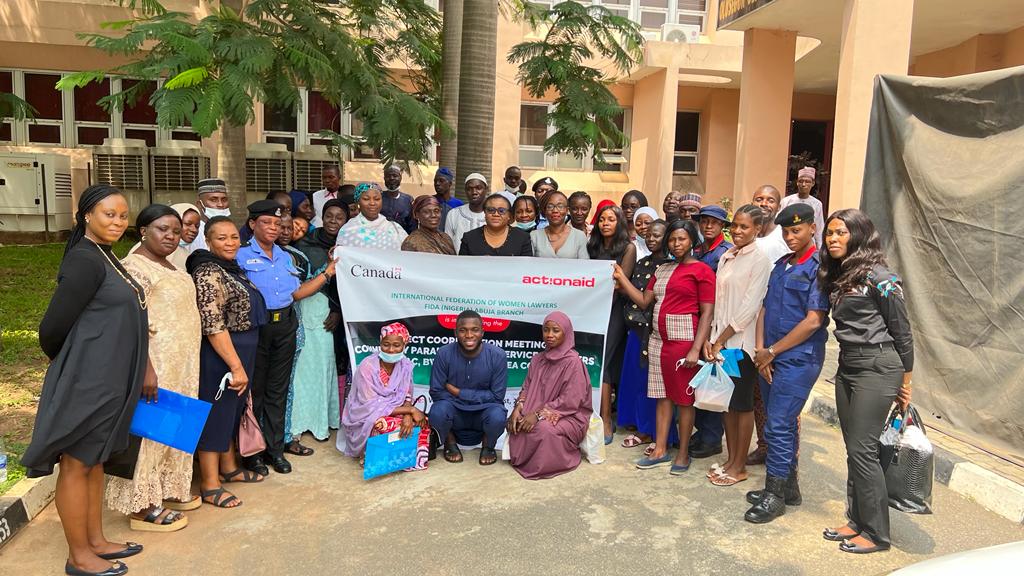
Coordination Meeting For Community Paralegals and Service Providers
FIDA Nigeria as part of activities under the Action Aid WVL Project (Year 4) held a coordination meeting for community paralegals and service providers on 10th August 2022.
The meeting was aimed at establishing an efficient and effective referral pathway structure for responding to GBV in selected communities across three Area councils of the FCT.
At the end of the meeting, community paralegals and service providers had a clearer understanding of their roles, the available referral mechanisms as well as the various service providers cataloged under the referral pathway system for improved and effective responses to GBV cases.
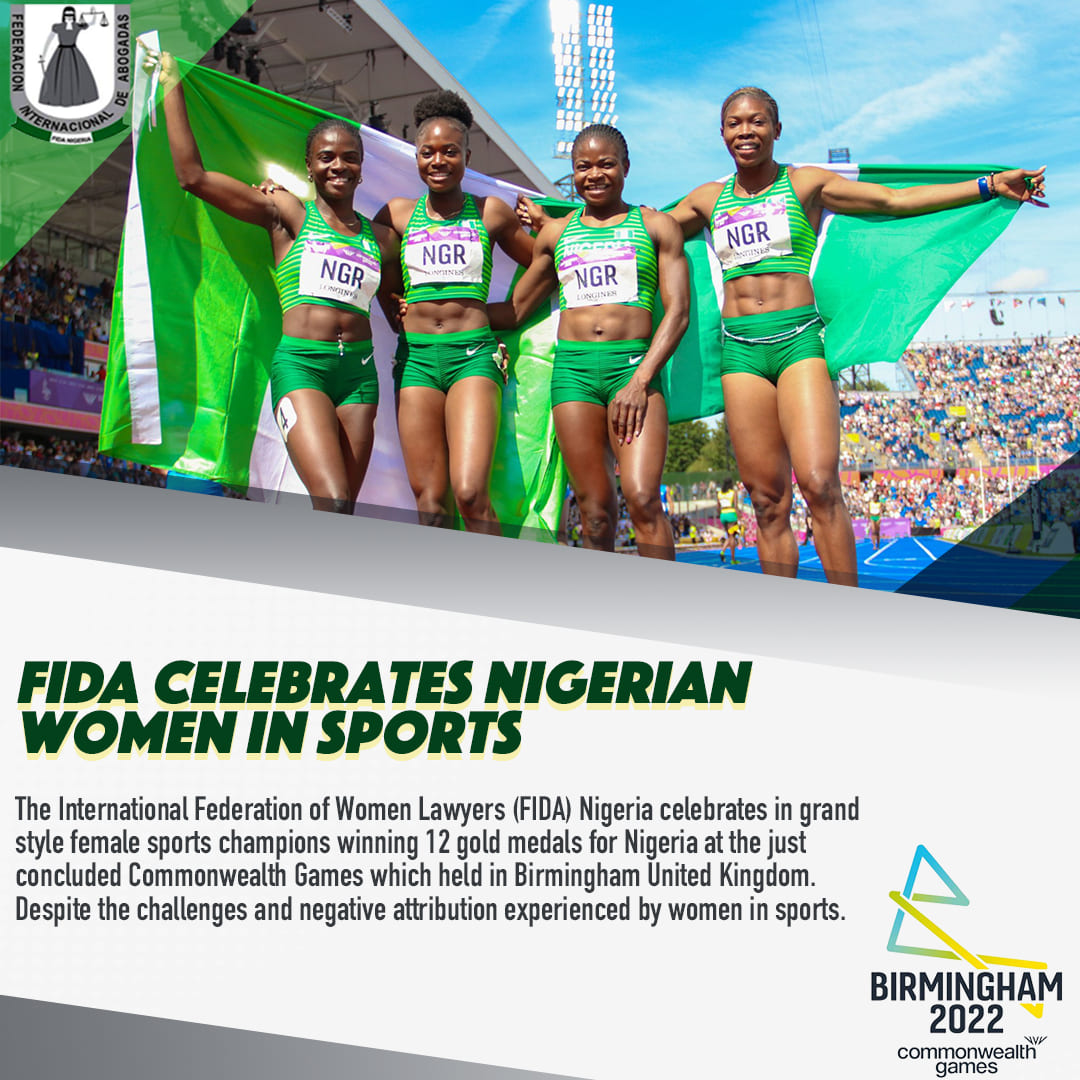
FIDA Celebrates Nigerian Women in Sports
The International Federation of Women Lawyers (FIDA) Nigeria celebrates in grand style female sports champions winning 12 gold medals for Nigeria at the just concluded Commonwealth Games which held in Birmingham United Kingdom
Despite all the negatives attributable to supporting women in sports such as:
– Poor infrastructure for training etc
– Lack of proper financial support
– The withholding and or non-payment of allowances and benefits
– Bad structure and leadership challenges
– Discrimination & sexism in sports, these negatives primarily against women in sports must stop
Our sportswomen have nevertheless, with pure grits, sheer determination, perseverance, and strong will rose to overcome all challenges and have shown to the world the power of strong, focussed, committed women with a vision, devoted and passionate about a cause
Nigeria got TWELVE GOLD medals at the just concluded Commonwealth Games in Birmingham i.e., our flag was hoisted, and the Nigerian Anthem played because of these meritorious women, some of whom also furthermore broke set records
On pure merit they deserve the resounding accolades, respect, and even national commendation and honours; not to mention a ‘SHEROES’ welcome on their return to Nigeria.
Nigeria, (her relevant agencies and indeed the good people of Nigeria) must rise up to further fund and support such great young girls who are still in their twenties to enable them achieve even more for our nation going forward.
Congratulations to:
- Adijat Adenike Olarinoye – who won gold in the women’s 55kg weightlifting event.
- Rafiatu Folashade Lawa l- who won a gold medal in the women’s 59kg weightlifting event
- Chioma Onyekwere – First Nigerian to win gold in the discus event at any Commonwealth Games
- Goodness Chiemerie Nwachukwu – won a gold medal in the women’s discus throw.
- Alice Folashade Oluwafemiayo – who won gold in the women’s 59kg weightlifting event
- Blessing Oborududu – who won a gold medal in the women’s 68kg wrestling event.
- Odunayo Folasade Adekuoroye – who won a gold medal in the women’s 57kg wrestling final.
- Miesinnei Mercy Genesis – who won a gold medal in the women’s 50kg wrestling event
- Eucharia Njideka Iyazi – who won a gold medal in the women’s shot-put event.
- Tobi Amusan – who won a gold medal in the women’s 100m hurdle race event while later winning another gold medal defending her 100m hurdle race title
- Tobi Amusan, Favour Ofili, Rosemary, and Nzubechi – who won Gold in 4 x 100m Relay
- Ese Brume – who won gold in the Long Jump
FIDA salutes and commends their fire, passion, zeal, and performance. We applaud their efforts and sacrifices while celebrating their successes as we call on other young girls to emulate these female sports champions of Nigeria. Indeed, the future is women!!!
– Support women in sports
– Stop gender discrimination in sports
– Promote and reward female sports champions
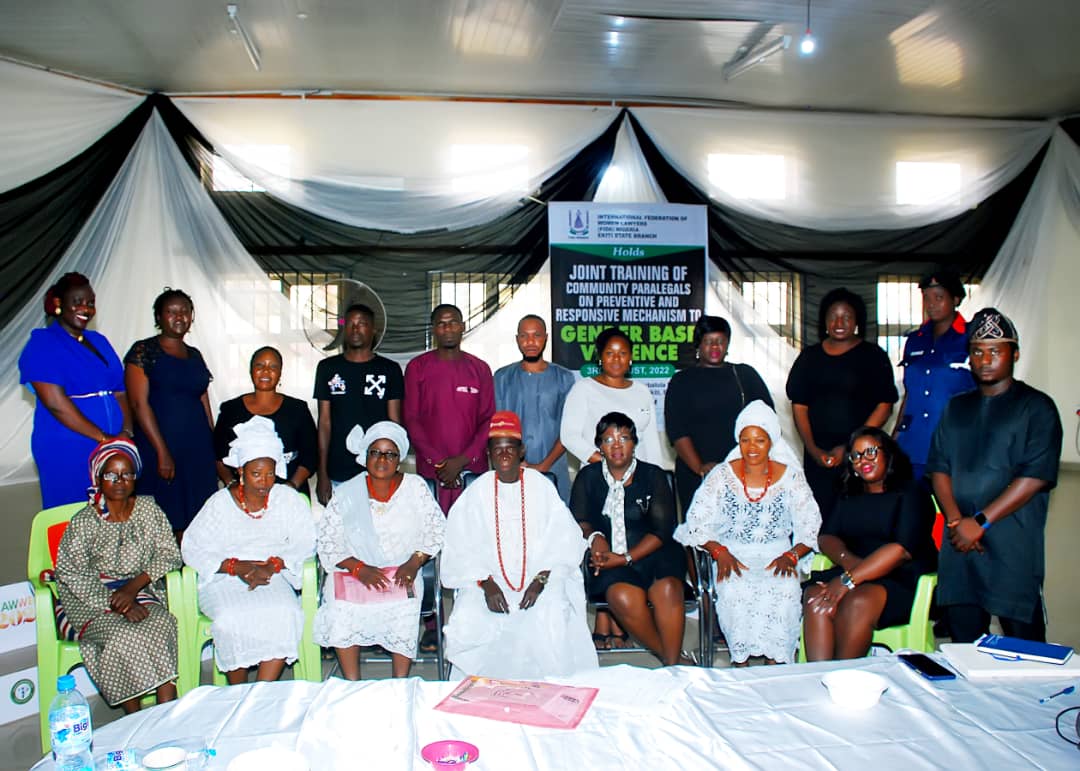
FIDA Nigeria Trains Twenty Paralegals In Ekiti State
FIDA Ekiti with support from Ford Foundation trains twenty paralegals from two Communities in Ekiti State namely: Ilawe-Ekiti and Erinmope-Ekiti on 3rd of August, 2022
The participants are stakeholders who served as gender-based violence surveillance teams in the communities.
The training is to equip them with necessary knowledge to handle uncomplicated issues in their Communities and refer crimes and complicated issues to the Law Enforcement Agencies and FIDA.
This will ensure the sustainability of the Ford Foundation funded project in the Communities and also strengthen the referral pathway in reporting matters regarding women and girls in the Communities.
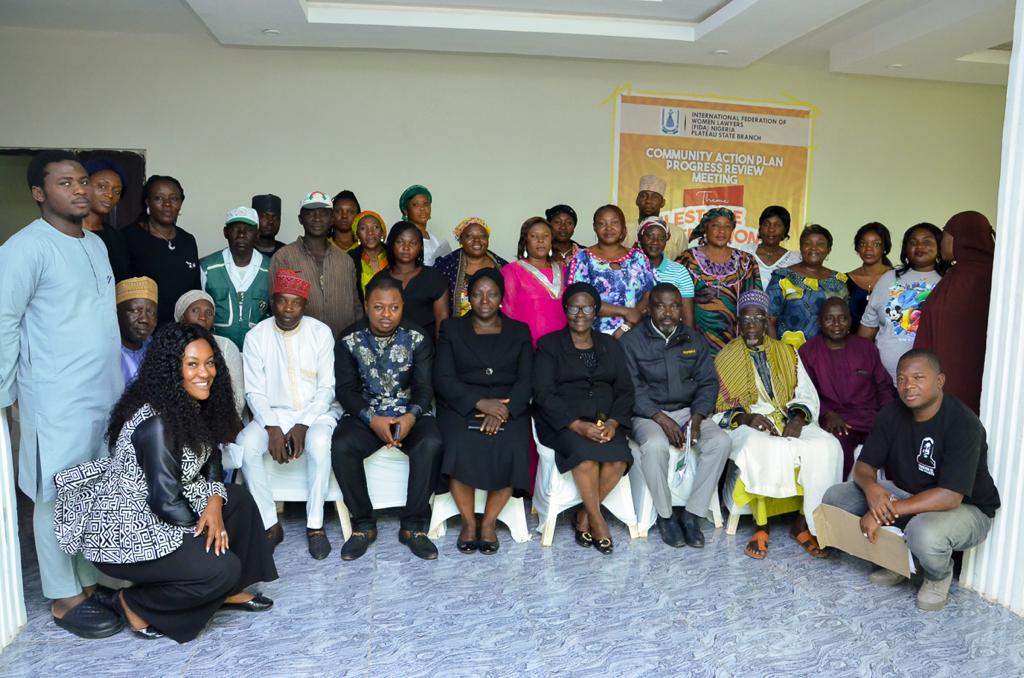
FIDA Plateau State Held Community Action Plan Progress Review Meeting
FIDA Nigeria, Plateau state branch with support from Ford Foundation carried out Action Plan Implementation Oversight visits to focal communities in Plateau State on Thursday the 28th day of July, 2022 and Friday the 29th day of July, 2022.
The activity aimed at accessing the progress of Community Action Plans implementation.
The activity focused on celebrating implemented milestones and proffering growth paths for stakeholders.
In Gyel community, the Traditional Ruling Council presented to FIDA a draft copy of the Community Bye Law developed to address cultural norms that affect the rights of women and girls within the Gyel District.
While in Mungun community, the District Head, HRH Da Job Ali, highlighted key provisions of the proposed Community Bye Law which is currently undergoing a wider consultation by the Community’s stakeholders.
Representatives across each stakeholder groups were able to share progress and challenges experienced on preventive and responsive activities undertaken to address emerging incidents of GBV within the communities.
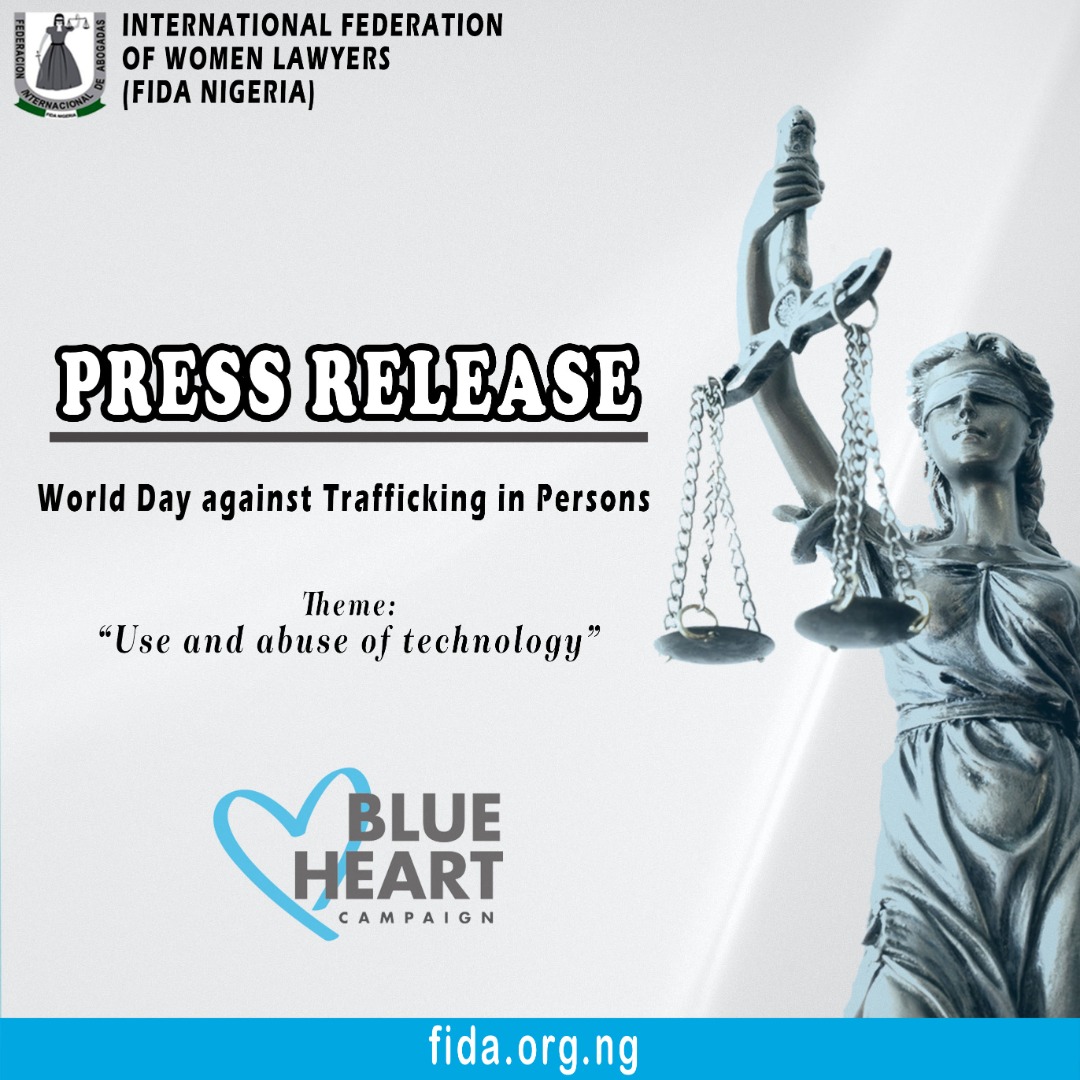
World Day against Trafficking in Persons
We live in a world of technology, and it has become an integral part of our daily lives shaping everything we do. As we commemorate the World Day Against Trafficking in Persons 2022, with the theme “Use and abuse of technology” we find this
theme apt as perpetrators of trafficking have continued to evolve.
This year’s theme focuses on the role of technology as a tool that can both enable and impede human trafficking.
It is reported that Traffickers currently use technology to profile, recruit, control, and exploit their victims as well as using the Internet, (especially the dark web), to hide illegal materials stemming from trafficking in addition to hiding their real identities from investigators.
Trafficking in persons is the acquisition of people by improper means such as force, fraud, or deception, with the aim of exploiting them (UNODC). This is a grave violation of one’s human rights. As with the rest of the world, trafficking in persons poses a great challenge in Nigeria, some of the regular cases of trafficking in Nigeria as reported by NAPTIP include forced migration, sex trafficking, recruitment of persons for organ harvesting, trafficking in slaves, attempt to commit an offense under this Act, tampering with evidence, forced marriage, illegal adoption, custody battle and abuse of Power
According to UNODC’s Global report on trafficking the most common form of human trafficking is sexual exploitation (79%), and often times the victims of sexual exploitation are frequently girls. Similarly, the 2021 report by the National Agency for the Prohibition of Trafficking in Persons (NAPTP) indicates that 1,112 cases of trafficking in persons were reported in the year under review with 35.8% being cases of sexual exploitation and illegal migration which in most cases are for prostitution.
In sub-Saharan Africa, 60% of trafficked victims constitute children with the larger chunk from west Africa (Global Report on Trafficking in Persons 2020, UNODC).
Due to the rising incidence of trafficking in this part of the world, we must take deliberate steps toward mitigating this challenge.
Often times, victims of trafficking are exploited because of their vulnerabilities such as the desire to escape domestic violence, poverty, mental or physical disabilities, homelessness, and migration for greener pastures.
With the global advancement in technological space, especially in communications, information of users on the world wide web is now previewed to a wider range of people, depending on the user’s privacy settings, personal information could even be accessed by strangers.
The role of technology in aiding and abetting victims of trafficking cannot be ignored either, perpetrators have transitioned from physical means of recruitment to virtual, technology most especially, social media serves as a platform where perpetrators can access potential victims due to their vulnerabilities and even computer illiteracy.
In most cases, the perpetrators impersonate certain positions they are not in a bid to lure online targets based on the information gotten from their interactions, these challenges are not only limited to the use of technology for the act but also as a means.
Victims can be sexually exploited by distributing pornographic content gotten illegally, the mental effect on the victim can take a long time as long as these materials remain in circulation; other effects can be stigmatization and withdrawal from society.
The DG of NAPTIP Dr Fatima Waziri–Azi, in the 2022 counter-trafficking strategic approach meeting reported cases of trafficking and other forms of exploitation via online means with a surge since the beginning of covid-19. Pandemic.
There have been several incidences, one of which is worthy of note which is the case of Iniubong Umoren who was in search for a job on social media, she was lured to a fake job interview and was eventually raped and killed in Uyo, Akwa Ibom State.
It is no doubt that trafficking has become a recurrent challenge in Nigeria and the world at large.
Despite its obvious challenges, technology is also an important asset for combatting trafficking which includes awareness creation on how trafficking networks operate, aid investigations, provide services to victims.
FIDA Nigeria calls on all the relevant stakeholders to build the capacity of the masses on digital literacy. Also, harness technology in efforts to counter trafficking in persons by imploring all necessary tools.
• Use of technology such as social media, facial recognition, geofencing, and geotagging to track perpetrators.
• Strategic collaboration and synergy between CSOs, Government agencies, and security apparatus. For example, NAPTIP’s collaboration with the National Centre for Missing and Exploited Children to enhance tracing and diligent investigation of all cases relating of child abuse and human trafficking.
FIDA Nigeria appreciates the hard work agencies and ministries of government including NGOs are doing in this respect and pledges continued support in the fight against human trafficking, as we will continue to partner with the National Agency for the Prohibition of Trafficking in Persons (NAPTIP) to ensure that women and children can live in a society free from exploitation and abuse
FIDA Nigeria stands against all forms of trafficking humans, let’s put an end to it.
#endhumantrafficking
Amina Suzanah Agbaje (Mrs)
Country Vice /National President

Hanifa Abubakar: Kano Court Sentences Abdulmalik, Hashim to Death by Hanging
On the 28th day of July 2022, Justice Usman Naabba of the Kano State High Court sentenced the Proprietor of Noble Kids College Kano, Abdulmalik Muhammmad Tanko (38), and two others to death by hanging for the kidnapping and killing of Hanifa Abubakar, a five-year-old pupil.
They had conspired and kidnapped the late Hanifa, thereafter they killed and buried her in a shallow grave in Northwest Preparatory School, located at Kwanar Yan Ghana, in Nassarawa LGA, Kano
Justice is therefore served in this matter with the prompt trial and sentencing of the accused persons. This should also serve as a deterrent to others


